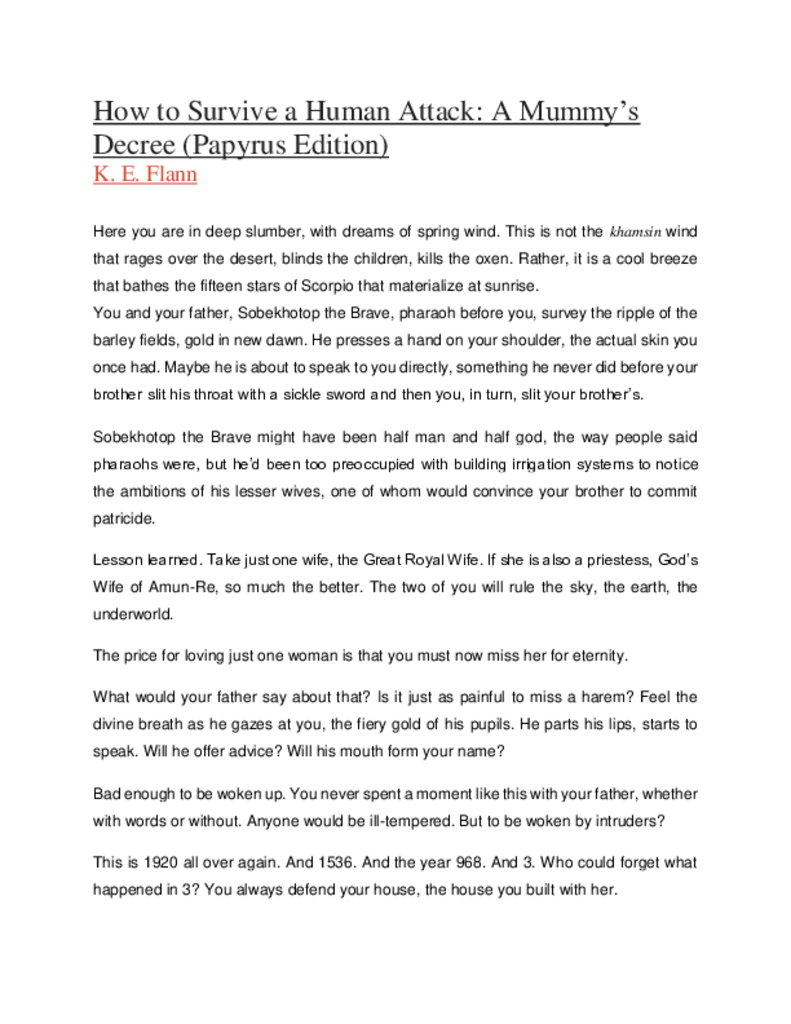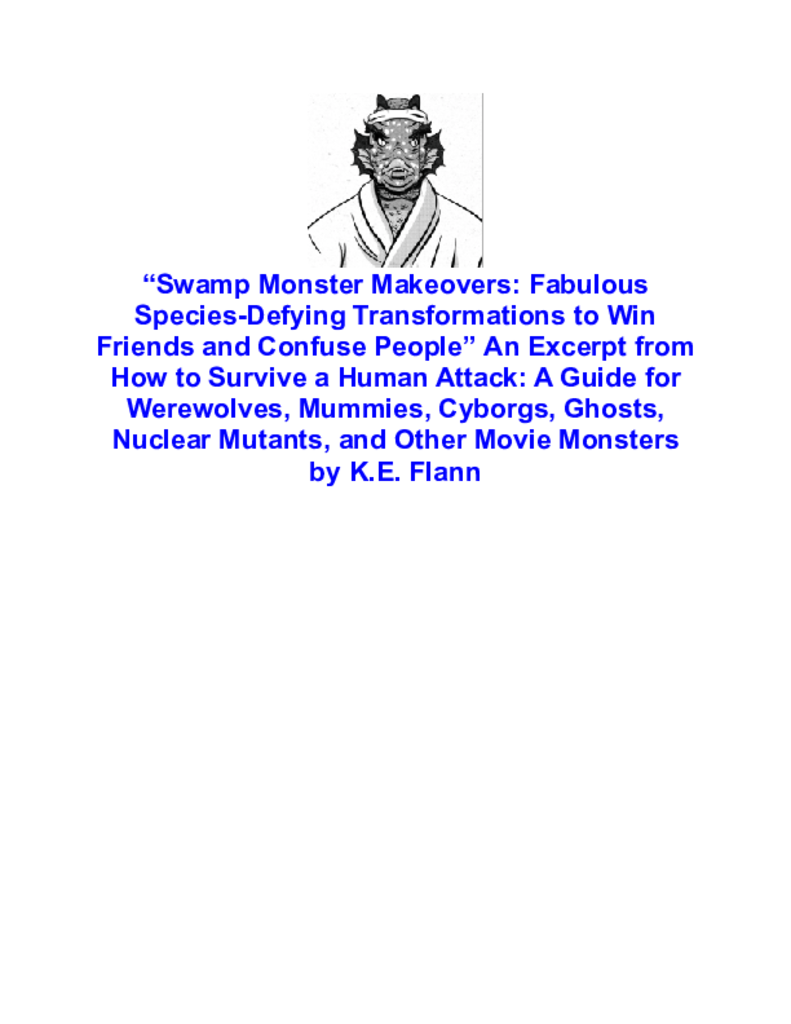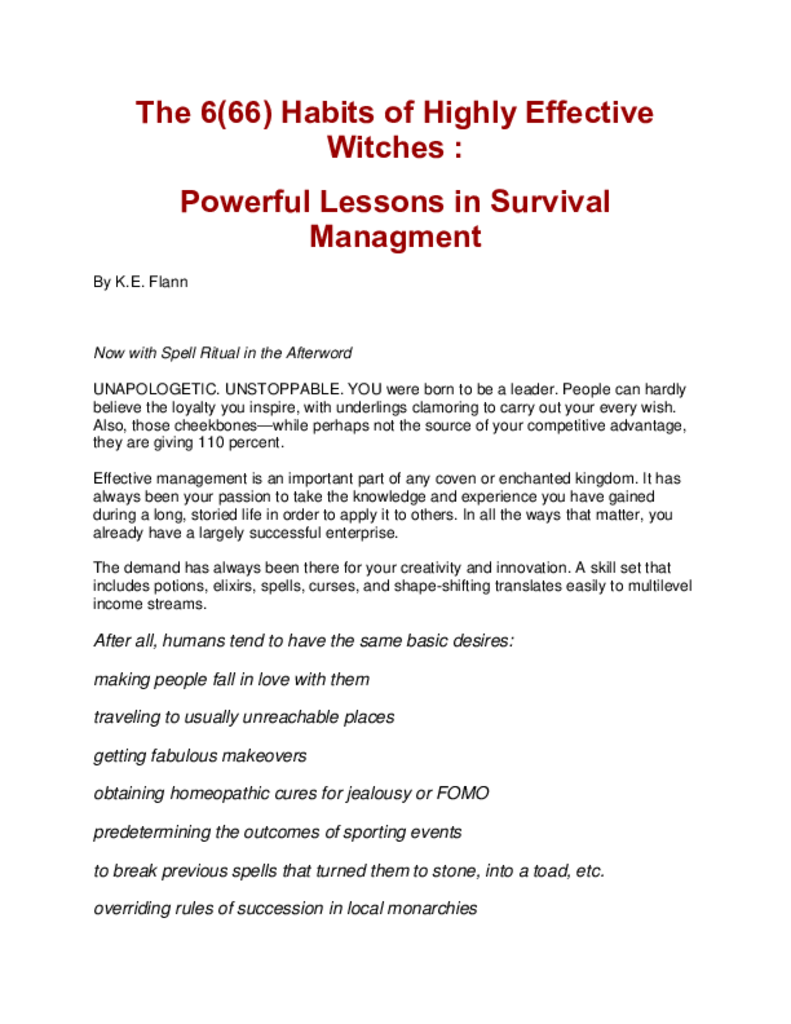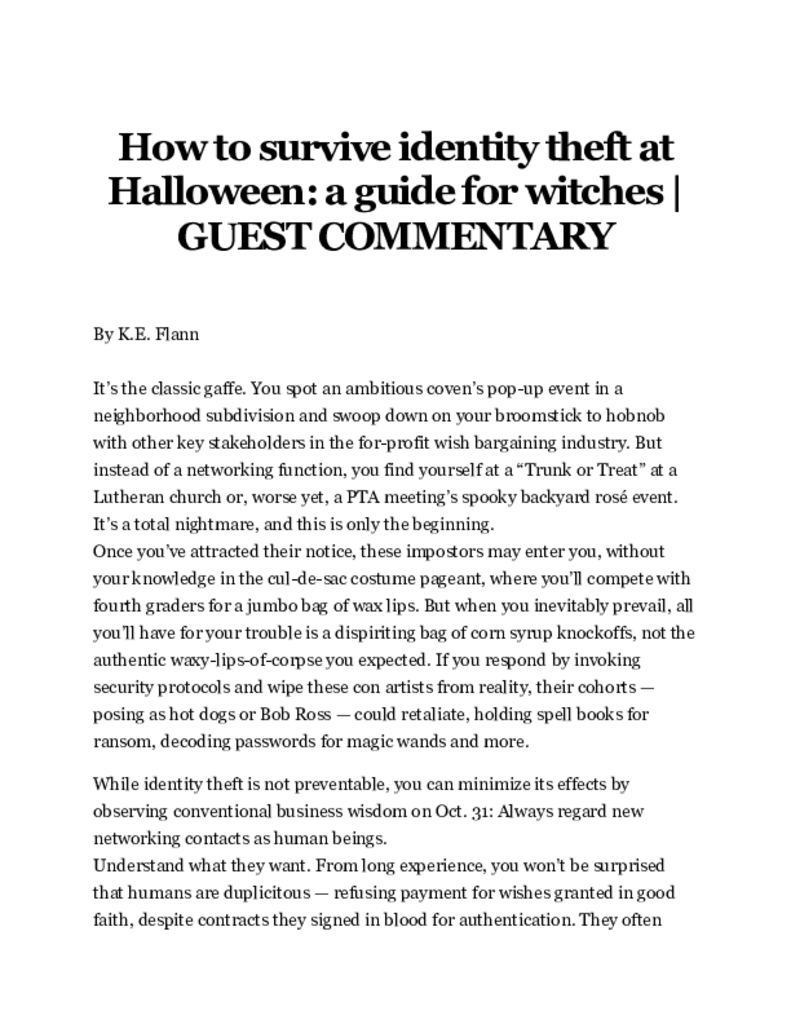Share:
About Kathy

Kathy Flann is an award-winning prose writer, whose work includes humor, nonfiction, and fiction. Her humor book – How to Survive a Human Attack: A Guide for Werewolves, Mummies, Cyborgs, Ghosts, Nuclear Mutants, and Other Movie Monsters (Running Press) – was featured in The New York Times/Wirecutter article, “The Gifts We Want to Give.” It was also featured as a “Scary Book of the Week” on the Hachette Novel Suspects site, where an excerpt appeared, a chapter entitled “The 6(66) Habits of Highly Effective Witches.” Her short humor pieces have been… more
Get a Grip
The stories in Get a Grip depict a range of imagined lives. There are Estonian brothers trekking from their neighborhood to a college interview. There’s a TV meteorite hunter in town to search for otherworldly treasure. We meet a widow addicted to physical pain and a successful ad executive who loses all his worldly possessions in one day. All of the characters work out their struggles in a partly real and partly imagined Baltimore, channeling, in turns, its charm, its despair, its humor, its self-doubt, its compassion. Get a Grip is a book about who we are when the cameras are off and the phone has died.
"Kathy Flann has created a beautiful work of art, populated by characters who are full of love, fear, loss, courage, and redemption. A brilliant collection, Flann's work restores my hope in humanity and makes me feel more truly alive." --Julianna Baggott, author of Harriet Wolf's Seventh Book of Wonders, a New York Times Notable Book of 2015
"There's a touch of Barry Hannah's cosmic what-the-fuckness running through Flann's short-story collection, the way an intimate scene's humor or horror depends on the point of view. From the woman whose husband died in flagrante with a prostitute to the teacher who gets a hard-on every time he sees his ex-wife in the cafeteria, these eight Baltimore-set stories dive into the lives of people a little bit desperate. Flann animates their responses to such crises with a merciless humanity, and whether you're laughing or crying with the results, you always feel a little empathy and a little, well, unclean." -- Baltimore City Paper
“Kathy Flann’s Get a Grip is a collection of short stories featuring tales with a strong sense of place (for Flann, Baltimore, Maryland) and believable characters in the midst of struggles with identity, relationships and often devastating circumstances…. Reaching the end of the collection, I felt a sort of disappointment creeping in at the edge of my psyche: not with the stories themselves, but with the notion that the reading was finished, which meant that I would cease interacting with such cleverly imagined characters….” --The Literary Review
“These ailments — the neuropathy, the infections, the possible hairline fractures — outwardly manifest for Flann's stunted, afflicted characters an inner fear that they will never again be loved. So much is at stake here….. As they struggle with their dilemmas, these despondent though often hilarious characters become more human for their flaws.” –Minneapolis Star Tribune
“I'd liken the magnetism of these stories to that of a YouTube reel of BMX wipeouts: painful to watch and yet strangely comic as they unfold, braiding both random bad fortune and intimations of inevitability. The slow-motion spills in Get a Grip are certainly more choreographed than an incidental meeting between a human knee and six linear feet of gravel and asphalt, but readers will be too absorbed in Flann's direct and emotionally perceptive prose to peek around for crash pads or strings.”--Carve Magazine
"Kathy Flann writes about Baltimore; all of the characters inside of Get A Grip know Baltimore and breathe it. They might not represent the whole of the city—Baltimore contains multitudes after all—but the subsection that they capture are represented well. They are well off, they are dissatisfied with their success, they are alienated from their family, their friends and themselves. When you read these characters’ stories, you know that Flann knows her audience well..... When you’re finished Get A Grip, you wonder if you truly know how to speak the language of your soul. You spend time thinking about the choices you’ve made, the choices you’ve failed to make, why you have or have not made them. Are you content? Do you just think you are? These are big questions, bigger than you’re prepared to answer, but you’re grateful that a book of short fiction can get you to even think them. You feel melancholy, like your heart has a toothache, but also hopeful. Melanhope. It’s a new feeling." -- Michael Tager, JMWW
-
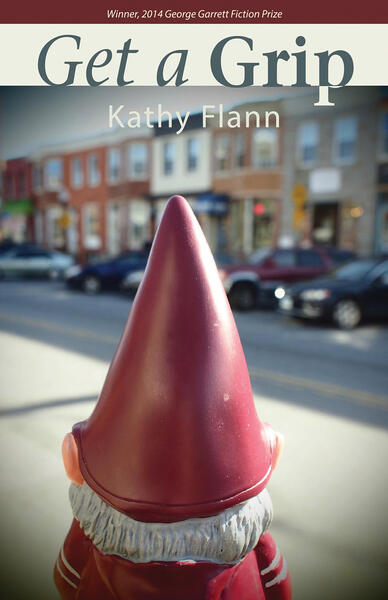 GAGcover.jpgGet a Grip by Kathy Flann
GAGcover.jpgGet a Grip by Kathy Flann -
 Baltimoremagbestof2015.jpgGet a Grip by Kathy Flann was named one of the Best Books of 2015 by Baltimore Magazine. http://www.baltimoremagazine.net/2015/12/24/best-books-of-2015
Baltimoremagbestof2015.jpgGet a Grip by Kathy Flann was named one of the Best Books of 2015 by Baltimore Magazine. http://www.baltimoremagazine.net/2015/12/24/best-books-of-2015 -
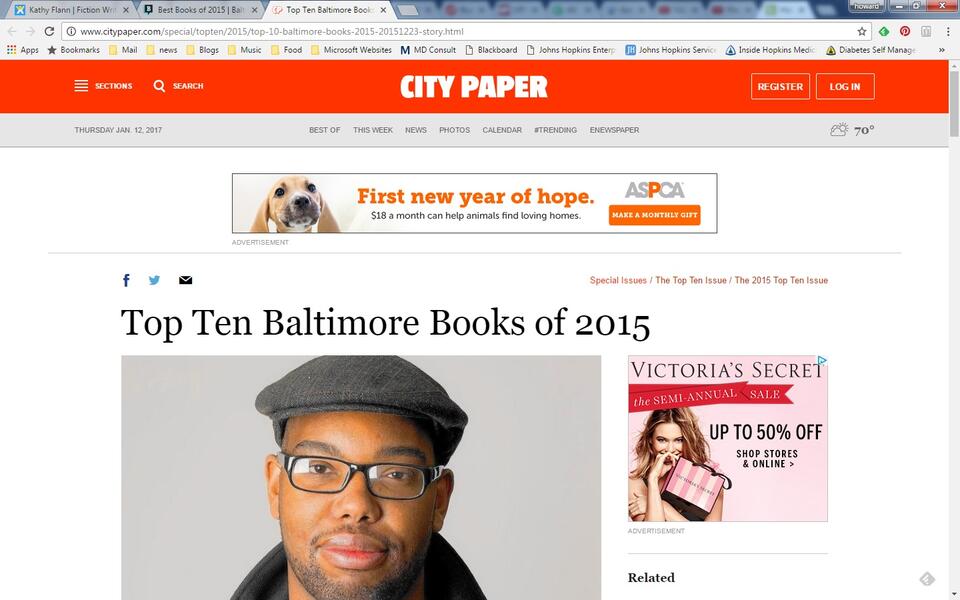 Citypaperbestof2015.jpgGet a Grip by Kathy Flann was selected as one of the Top Ten Baltimore Books of 2015 by the City Paper. http://www.citypaper.com/special/topten/2015/top-10-baltimore-books-2015-20151223-story.html
Citypaperbestof2015.jpgGet a Grip by Kathy Flann was selected as one of the Top Ten Baltimore Books of 2015 by the City Paper. http://www.citypaper.com/special/topten/2015/top-10-baltimore-books-2015-20151223-story.html -
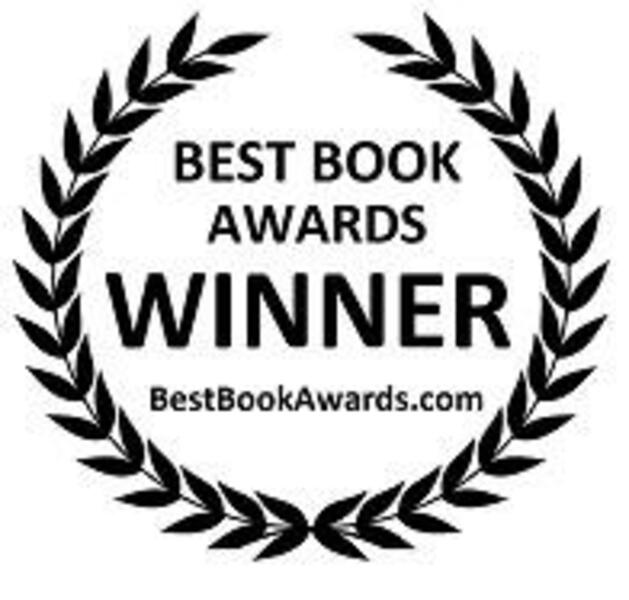 BBSmallWinner2017WHITE.jpgGet a Grip by Kathy Flann was the Winner of 2016 Best Books Awards for Fiction: Short Story
BBSmallWinner2017WHITE.jpgGet a Grip by Kathy Flann was the Winner of 2016 Best Books Awards for Fiction: Short Story -
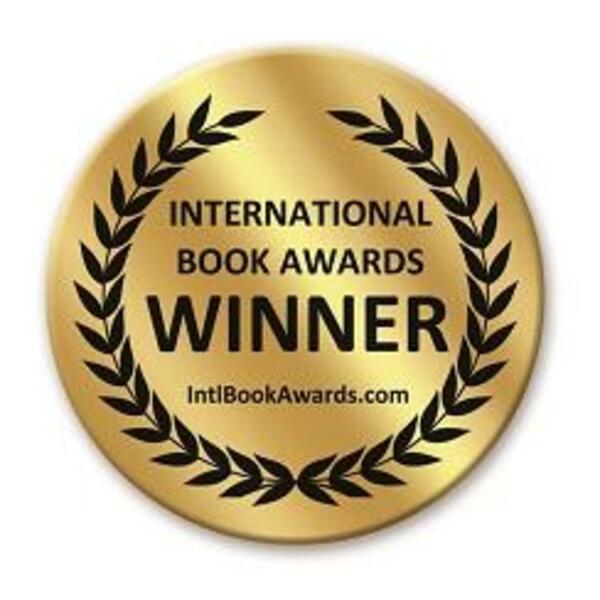 IBAwinnerJPEGsmall.jpgGet a Grip by Kathy Flann was the Winner of 2016 International Book Award for Fiction: Short Story
IBAwinnerJPEGsmall.jpgGet a Grip by Kathy Flann was the Winner of 2016 International Book Award for Fiction: Short Story -
Audio excerpt of Neuropathy read by the authorThis is an excerpt of "Neuropathy," a story about a Baltimore woman who is addicted to physical pain and searching for her sense of purpose on Home Shopping Network. The story won third prize out of nearly 700 entries in a contest at Carve magazine, and this audio recording can be found on the Next Best Book Blog.
-
Excerpt of Little Big ShowThe footpath gallops ahead like a dumb dog, disappears around bends in the forest. This has been Alexander’s first real hike, a hard scrabble -- scuttling along in a crouch at times as if he might find grips on the flat rocks. His assistant at work would have loved some photos.
Smoky Ordinary
"Kathy Flann’s collection of eleven short stories in Smoky Ordinary was a delight for me to read. For example, in her compelling tale, “The Dispossession of Billy Montgomery,” you will find plenty to hold your interest, while having a huge laugh at the same time. Ms. Flann’s fiction stories are centered around Smoky Ordinary, a community located in rural Virginia, just south of Washington, D.C. I highly recommend her book." -- William Hughes, Media Monitors Network
Stories in this collection have appeared in Shenandoah, The North American Review, Quarterly West, The Barcelona Review, New Stories from the South, and other publications.
-
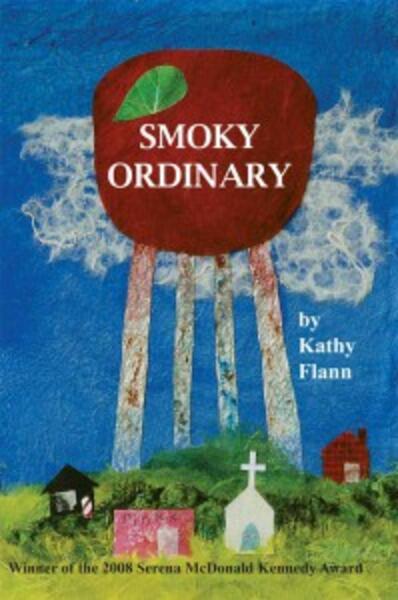 Smoky Ordinary"Please welcome Kathy Flann, whose keen eye, quick pencil, and tremendous heart have reached practically everybody in the inverted but wholly believable community of Smoky Ordinary, from small to great, the up-and-comers to the down-and-outers, from the woman caring for her dying husband to the man that howls like a dog, from a jaded former United States President to the bird smashed on the grill of his limo. This collection marks the beginning of an original and memorable career." -Madison Smartt Bell
Smoky Ordinary"Please welcome Kathy Flann, whose keen eye, quick pencil, and tremendous heart have reached practically everybody in the inverted but wholly believable community of Smoky Ordinary, from small to great, the up-and-comers to the down-and-outers, from the woman caring for her dying husband to the man that howls like a dog, from a jaded former United States President to the bird smashed on the grill of his limo. This collection marks the beginning of an original and memorable career." -Madison Smartt Bell -
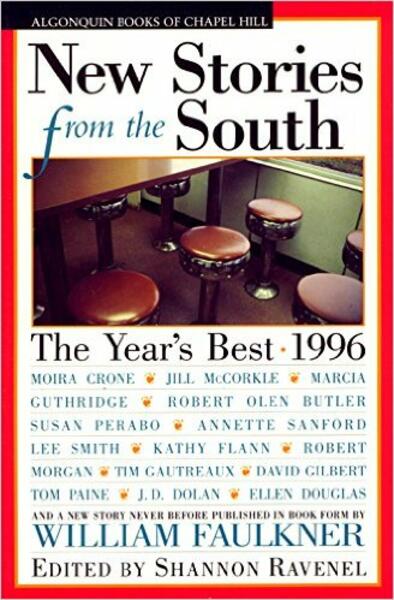 New Stories from the SouthThe first story I ever wrote and finished, "A Happy, Safe Thing," was published in Shenandoah. Later, it was selected for New Stories from the South, as a top story of that year. It appeared along with newly discovered story by William Faulkner. Later, "A Happy, Safe Thing" inspired me to write a whole series of stories set in that same town -- a made-up place called Smoky Ordinary.
New Stories from the SouthThe first story I ever wrote and finished, "A Happy, Safe Thing," was published in Shenandoah. Later, it was selected for New Stories from the South, as a top story of that year. It appeared along with newly discovered story by William Faulkner. Later, "A Happy, Safe Thing" inspired me to write a whole series of stories set in that same town -- a made-up place called Smoky Ordinary. -
Full text of An Airtight Box -- first published in The Del Sol ReviewDuring intermission of the "Tosca" benefit performance, ex-President Clinton, without Hillary, stepped outside the door of his Kennedy Center box, wondering what it would be like if someone shot him, maybe in his good lung, or maybe, if the attacker had lousy aim, even in the groin.
-
Excerpt of A Happy, Safe ThingMy older sister, Minnie, and her new husband, Sax Smithers, whom she met six months ago, are going to show up half an hour late for their wedding reception. They get held up on the way to the American Legion because all six guys from the pharmacy, where Sax sorts boxes of pills, want a ride, right then, in front of Shepherd of the Hills Methodist Church, in Grandma Tillie’s brand new 1983 Cadillac convertible.
-
Excerpt from ExperimentsMy father, appliance repairman Ed Hart, had been dating a reporter from the local news for over three months, ever since he and my mother separated. They met when Channel Four’s "Eye on You" News interviewed me at the Northern Virginia Sixth Grade Science Fair about my winning project, The Worm Farm--a kitchen composter made from a recycling bin filled with dirt, biodegradable household trash, and a hundred worms.
-
Excerpt of Strike AnywhereWhen Rochelle refers to your brother Scott as "Sparks," which is his prison name, you feel certain you've lost her. She perches on the arm of your sofa, slender ankles crossed just below the hem of her sheer blue dress, neck craned toward Scott, who traipses through your off-white living room in work boots. He has been living with you for three months. You cannot, at this moment, remember the last time you spoke to him.
-
Excerpt from Mad DogAt that moment three years ago when John Casey had signed up for University Challenge, he could not have known that the BBC cameras would love him, that the incongruity of his Washington Senators baseball cap, his impossibly swift answers to questions from any academic field, and his penchant for the exclamation “Who da brain man!” would make him a stand-out on the Lancaster University team.
Nonfiction pieces
Kathy has contributed reflections on writing and life for The Huffington Post, The Washington Post Magazine, Slate, The Gettysburg Review, The Texas Review, Baltimore Style, Baltimore Fishbowl, Stay Thirsty Magazine, and other publications.
She was a short fiction writer for years, and one of the appeals of the form was the invisibility it afforded. Readers would (she hoped) be focused on the fictional characters and plots rather than on the writer herself. The impetus to pivot to nonfiction, even with all its vulnerability, was a simple urge to pay homage to her dog. After all, the dog had saved her from a fire and seemed unlikely to write its own memoirs. As the pieces evolved, the work seemed really to be about grief and loss. Occasionally, there weren't even dogs in them.
-
 My Aunt Has Had A Bullet In Her Head For 50 Years. I Finally Asker Her About It - But I Wasn't Prepared For The Truth
My Aunt Has Had A Bullet In Her Head For 50 Years. I Finally Asker Her About It - But I Wasn't Prepared For The TruthFrom The Huffington Post, August 14, 2024, Voices section
-
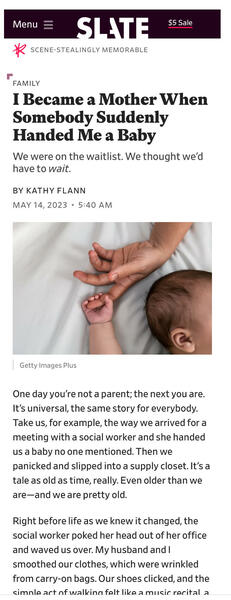 I Became a Mother When Somebody Suddenly Handed Me a Baby
I Became a Mother When Somebody Suddenly Handed Me a Baby -
Humor For the Departed
"Humor For The Departed" is a personal essay that appeared in The Washington Post Magazine's "In Memoriam" Issue (December 11, 2022). The piece grew from a central question: "Why was I so full of jokes when my dad died?" The question seemed unanswerable until the grief in the story transformed into Grief, a character in its own right, a free agent, a trickster.
-
"Lessons" (published in The Gettysburg Review""Lessons" (published in The Gettysburg Review")
This memoir piece is about purchasing a house in England with a backpack full of cash, the perils of commitment, and the dog who saved Flann's life. The essay is part of a book-length series of memoir pieces about moving to Europe with her dog on Sept 11th, 2001. Each narrative examines personal struggles with lingering effects of family abuse and trauma -- against a backdrop of geo-political upheaval and/or the exploration of cultural differences. The project grew out of a simple desire to pay homage to the dog, Clark, who saved her life, both figuratively and literally. However, as the pieces developed, she asked why it was easy to love the dog, but challenging to love others or herself, questions that an unfamiliar culture and the passage of time allowed her to confront. -
"Leave It" (published in The Gettysburg Review)"Leave It" (published in The Gettysburg Review)
This piece is Flann's first-person account of her dog's attempt to murder a chicken in the South of France, an event that forced an unexpected reckoning with grief and loss she thought she had outrun. The essay is part of a book-length series of memoir pieces about moving to Europe with her dog on Sept 11th, 2001. Each narrative examines personal struggles with lingering effects of family abuse and trauma -- against a backdrop of geo-political upheaval and/or the exploration of cultural differences. The project grew out of a simple desire to pay homage to the dog, Clark, who saved her life, both figuratively and literally. However, as the pieces developed, she asked why it was easy to love the dog, but challenging to love others or herself, questions that an unfamiliar culture and the passage of time allowed her to confront. -
Off Color -- published in The Texas ReviewFlann is currently working on a book-length project -- a memoir about traveling through Europe with her dog. "Off Color" is a section about a budding, ill-fated romance with a Frenchman in post-9/11 Southern France. It was published as a freestanding piece in The Texas Review.
-
Sink or Swim -- published in Baltimore StyleHere was the fact: I couldn’t swim. But my brain, as if it were a high paid defense attorney, never asked me a question that would reveal this fact. When the topic of swimming came up, my brain re-framed the issue something like this: “If someone chucked me in a lake, would I drown?” In the movies, people who couldn’t swim always sunk, a flurry of arms and gasps. It was kind of ironic the way their faces contorted into gasping fish lips. That wasn’t me.
-
Hi, Ho the Derry-O -- published in Baltimore FishbowlMy mom bought me a toolkit and a train set, which, in the early 70’s, were pretty weird toys for a girl. It was a pre-plastic era, and all of the toys had the metal heft of the real article. They were miniature, yes, but didn’t have the garish colors or distorted proportions of today’s Fisher Price. I can still feel the boxcar wheels click onto the steel tracks and the serrated dial adjust the jaws of the wrench. “I wanted her to know she could be anything she wanted,” my mother likes to tell people. But when she asked me one day, in our avocado kitchen, what I thought that might be, I revealed a narrow concept of the word anything. “I want to be a farmer’s wife,” I told her. When my mom tells this story at dinner parties, it always kills.
Letter from America
link: http://www.nawe.co.uk/writing-in-education/nawe-magazine/letter-from-america.html
-
From the Autumn 2008 IssueWith all of the talk about a Creative Writing A-Level, we’re thinking a lot about the best ways to prepare students to study writing at the university level. How would it work? What would it contain? Will those studies prepare students for the culture, methodologies and rigor of university-level study?
-
From the Summer 2015 issuePeople worry about us here in Baltimore. Images from HBO’s The Wire and now from the CNN coverage of the recent riots suggest city-wide siege. Before the TV cameras packed up and left, I received polite messages from family and friends. “Are you okay? Is the wedding still on?”
Atomic Books Fiction Series
How to Survive a Human Attack
Selections from the book have appeared in Weekly Humorist, Monkeybicycle, Defenstration, and elsewhere. On the basis of them, Flann was invited to appear at "An Evening of Humorous Prose," in Washington, DC, along with writers from Cracked, The Onion, McSweeneys, and TV's "Late Night with Seth Myers."
The earliest incarnations, published as freestanding pieces, included:
"How to Survive a Human Attack: A Zombie's Guide to Filling the Emptiness and Moving Forward"
"How to Survive a Human Attack: A Mummy's Decree (Papyrus Edition)"
"How to Survive a Human Attack: Swamp Monster Makeovers"
"How to Survive a Human Attack Appendix I: A Compendium of Human Repellents"
-
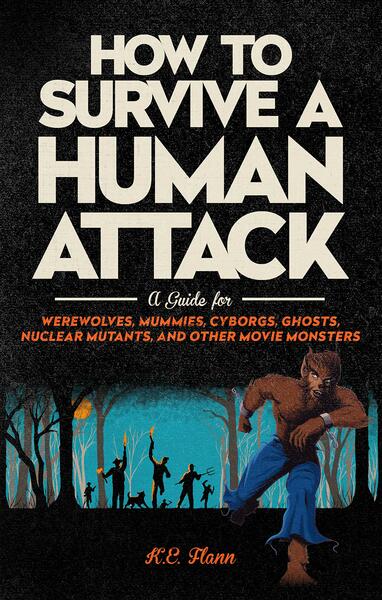 How To Survive A Human Attack - A Guide for Werewolves, Mummies, Cyborgs, Ghosts, Nuclear Mutants, and Other Movie MonstersPublished in September 2021 from Running Press (Hatchette). The first-ever manual for zombies, swamp monsters, mummies, and vampires to survive the planet’s greatest threat: humans. Did you know that human attacks account for a staggering 100% of premature deaths for mummies, robot overlords, and other supernatural, cyber, mutant, and alien beings? The past millennia or so has seen not only an uptick in human attacks, but also increasingly indiscriminate victim selection. It is understandable to feel overwhelmed. How to Survive a Human Attack provides critical information at a critical time with chapters specifically tailored to their target audience, including: The Zombie’s Complete Guide to Filling the Emptiness and Moving Forward Swamp Monster Makeovers! Here, Boy! Self-Training Tips for Werewolves The First-Time Haunter’s Guide: How to Evict Squatters, Stay On Top of Mansion Disrepair, and Get to the Light Chicken Soup for the Soulless: Uninspiring Stories of Demon Possession and Ignored Prayers No More Meltdowns: A Cyborg Assassin’s Workbook for Neutralizing Hostility Using Java U.S.A.! U.S.A.! Tips for the Urban Sixty-Foot Ape and Other Animals or Insects of Exceptional Proportion (Large Print) Eat What You Love, Love How You Feel: Hill People and Radioactive Cannibals
How To Survive A Human Attack - A Guide for Werewolves, Mummies, Cyborgs, Ghosts, Nuclear Mutants, and Other Movie MonstersPublished in September 2021 from Running Press (Hatchette). The first-ever manual for zombies, swamp monsters, mummies, and vampires to survive the planet’s greatest threat: humans. Did you know that human attacks account for a staggering 100% of premature deaths for mummies, robot overlords, and other supernatural, cyber, mutant, and alien beings? The past millennia or so has seen not only an uptick in human attacks, but also increasingly indiscriminate victim selection. It is understandable to feel overwhelmed. How to Survive a Human Attack provides critical information at a critical time with chapters specifically tailored to their target audience, including: The Zombie’s Complete Guide to Filling the Emptiness and Moving Forward Swamp Monster Makeovers! Here, Boy! Self-Training Tips for Werewolves The First-Time Haunter’s Guide: How to Evict Squatters, Stay On Top of Mansion Disrepair, and Get to the Light Chicken Soup for the Soulless: Uninspiring Stories of Demon Possession and Ignored Prayers No More Meltdowns: A Cyborg Assassin’s Workbook for Neutralizing Hostility Using Java U.S.A.! U.S.A.! Tips for the Urban Sixty-Foot Ape and Other Animals or Insects of Exceptional Proportion (Large Print) Eat What You Love, Love How You Feel: Hill People and Radioactive Cannibals -
The 6(66) Habits of Highly Effective Witches (Book excerpt)"The 6(66) Habits of Highly Effective Witches," a chapter from the book, appeared in Novel Suspects, Hachette Book Group's blog for mysteries and thrillers. The site has 312k subscribers.
The witch is the only "monster" in the book that is (usually, historically) implied to be female, and thus the chapter was an opportunity to satirize movies and culture from a different angle. -
How to Survive a Human Attack: A Mummy’s Decree (Papyrus Edition)Early in the process, when it wasn't clear what form these "advice" pieces would take, the mummy piece materialized as a short story, which was published in Monkeybicycle. Later, when the book evolved as a parody survival guide, the mummy chapter became an instruction manual for the "Third Eye Tomb Security System," inspired by the Ring Doorbell. Here is the original short story to demonstrate the evolution of the project.
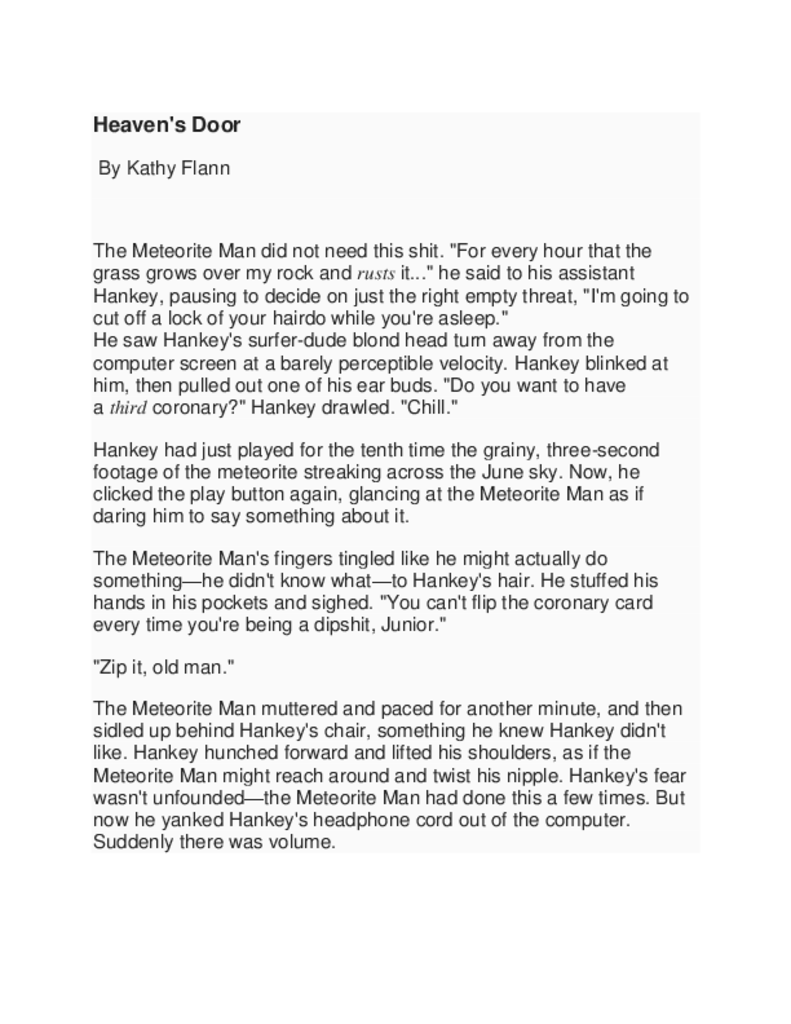
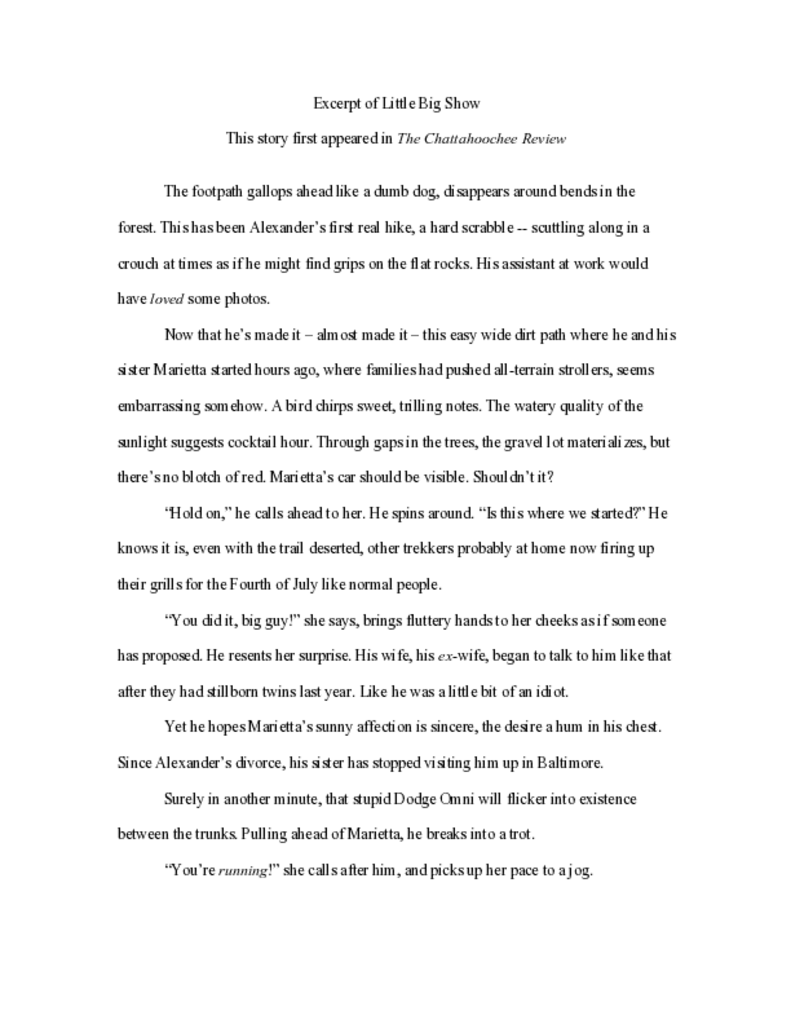






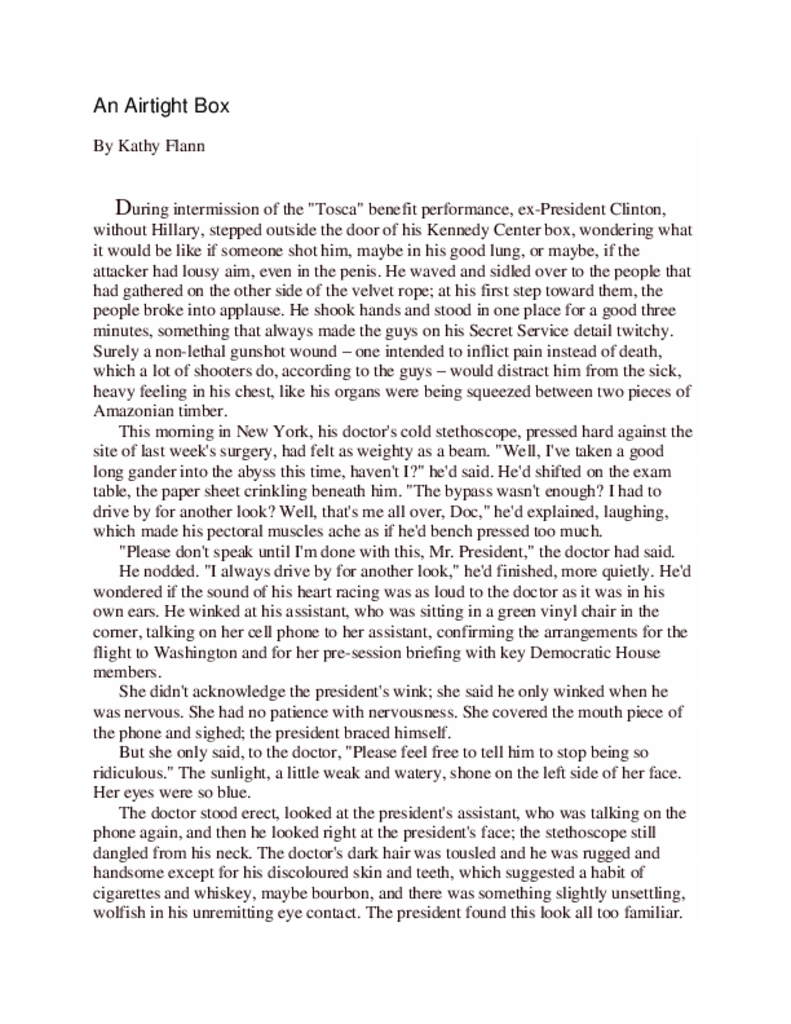
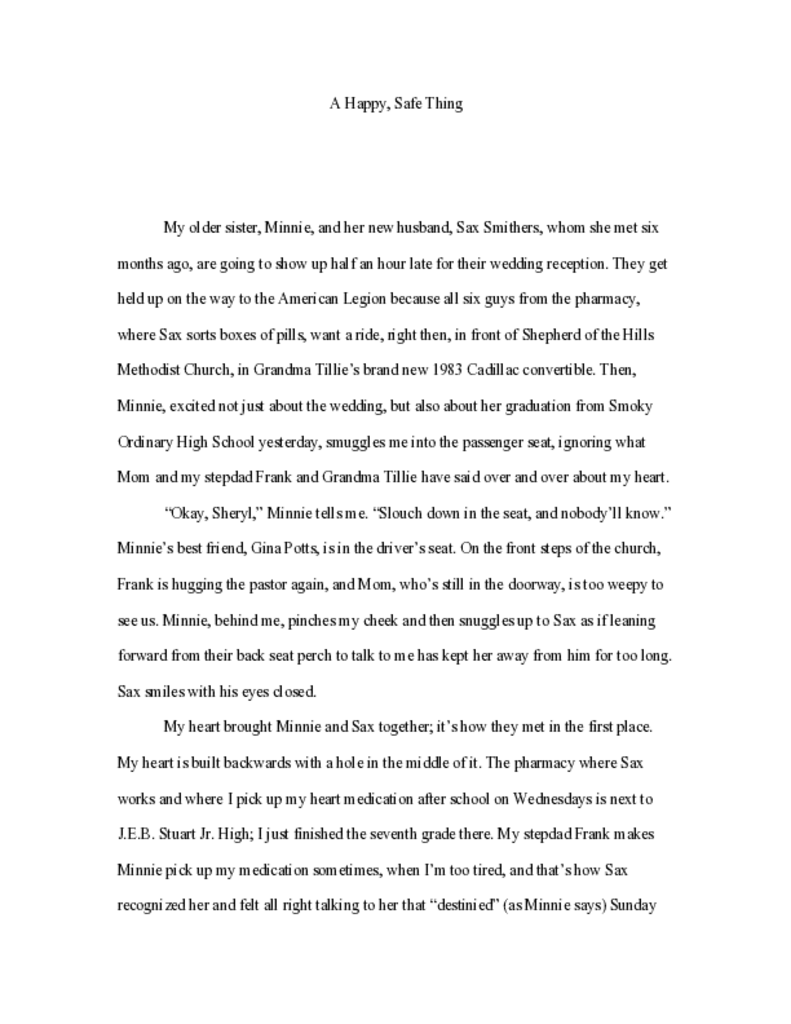
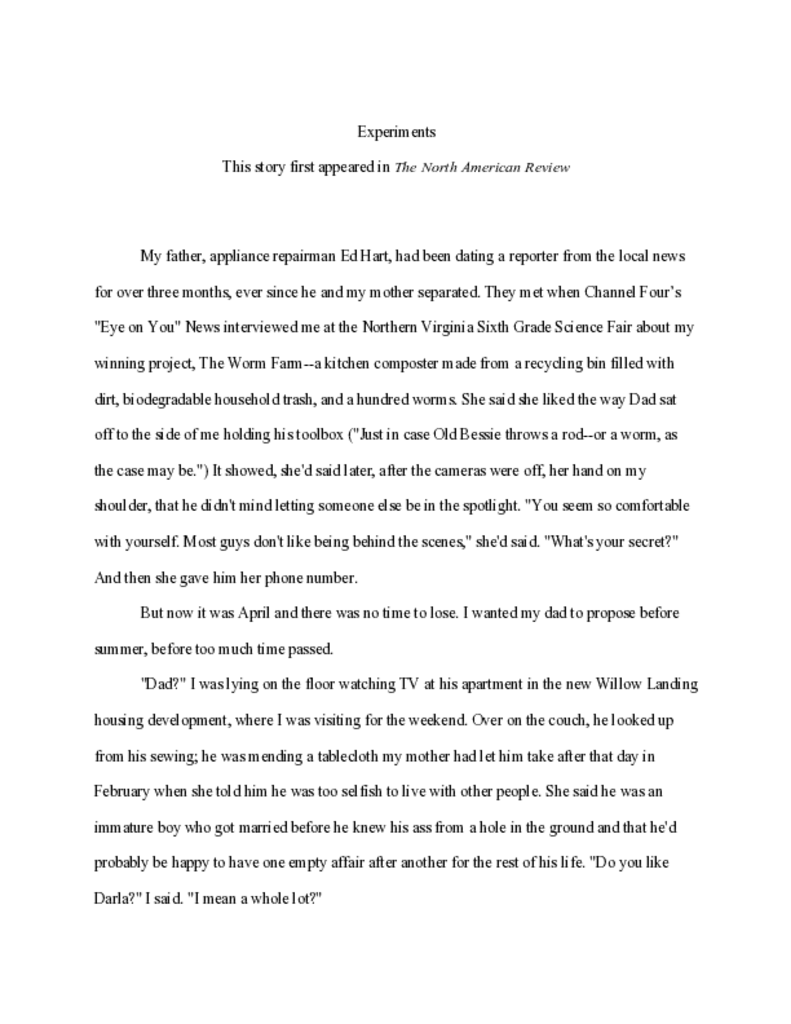
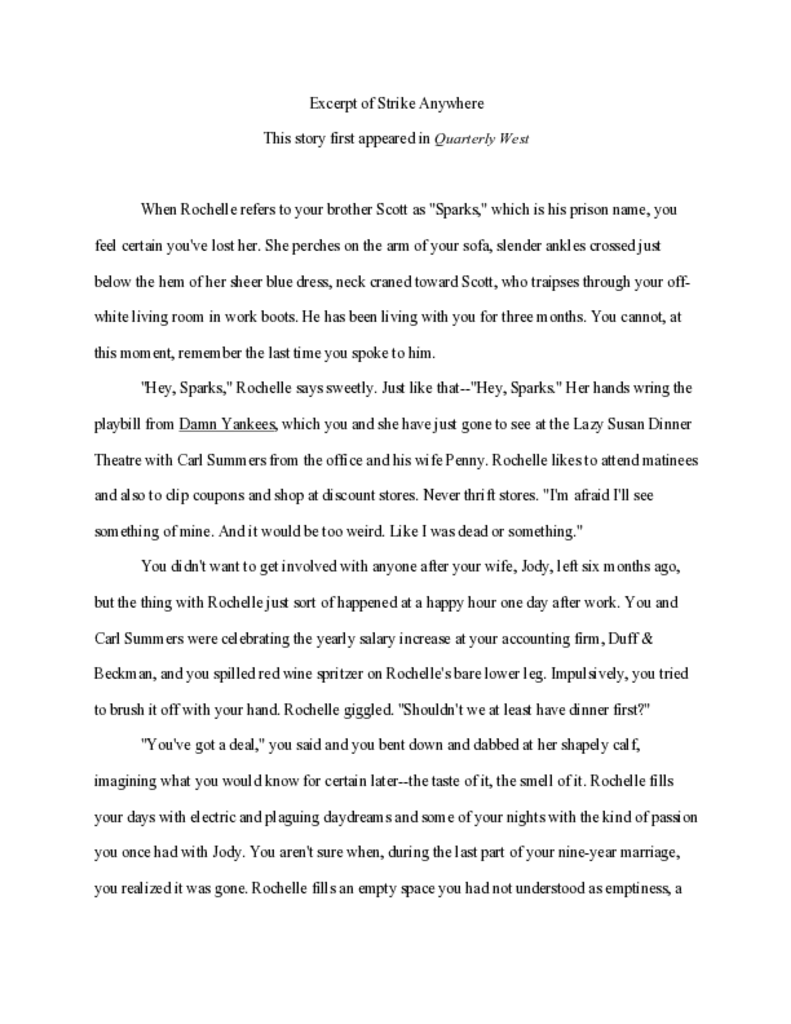
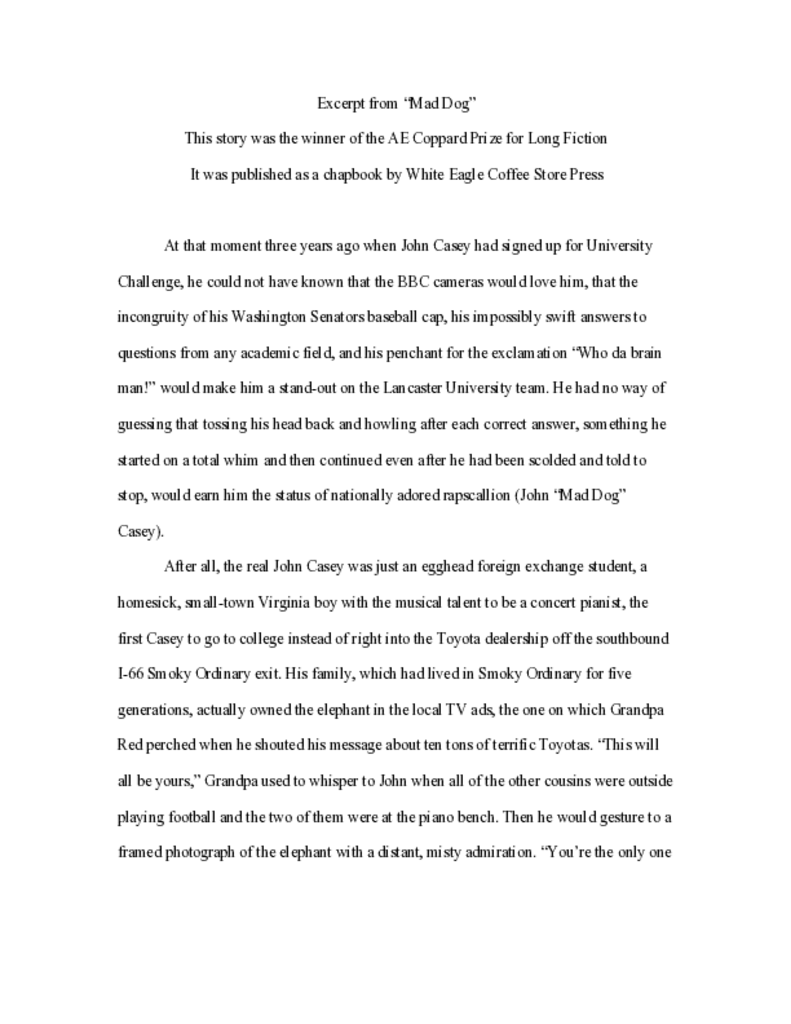


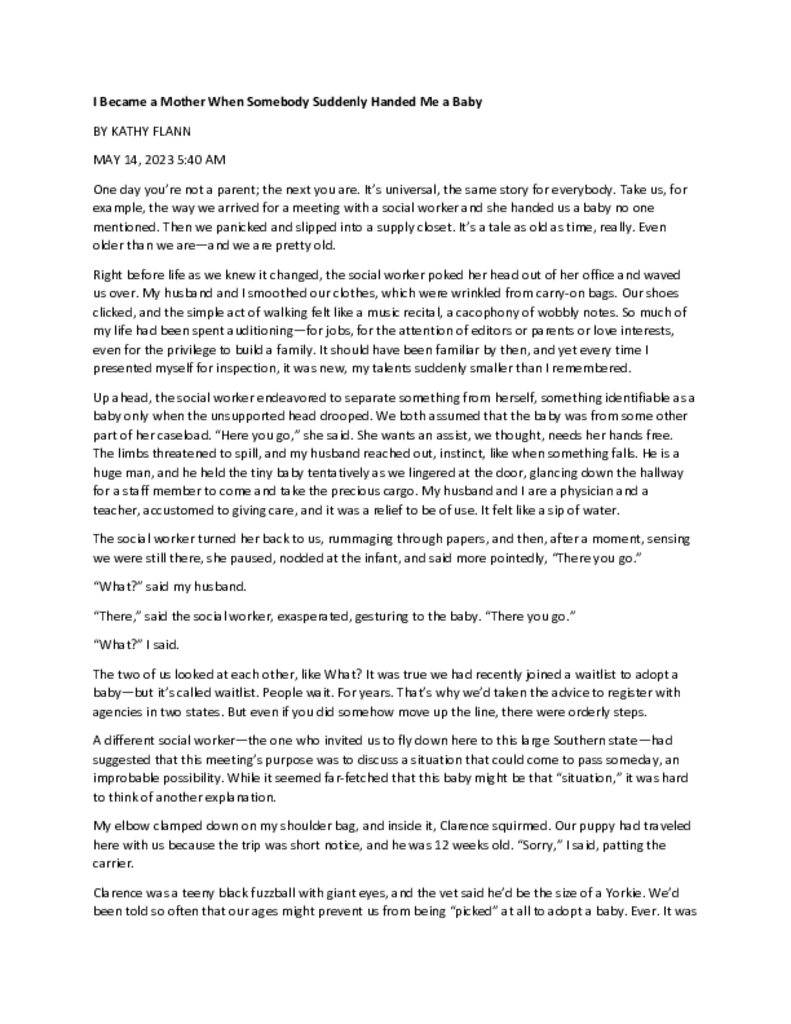
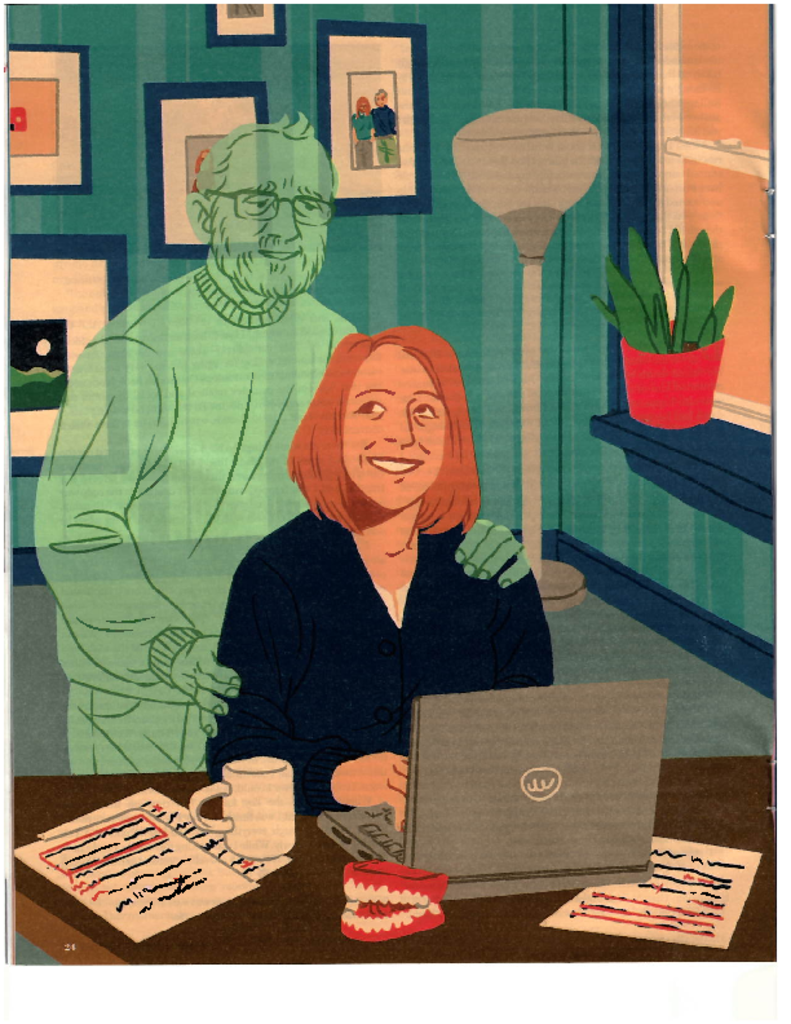
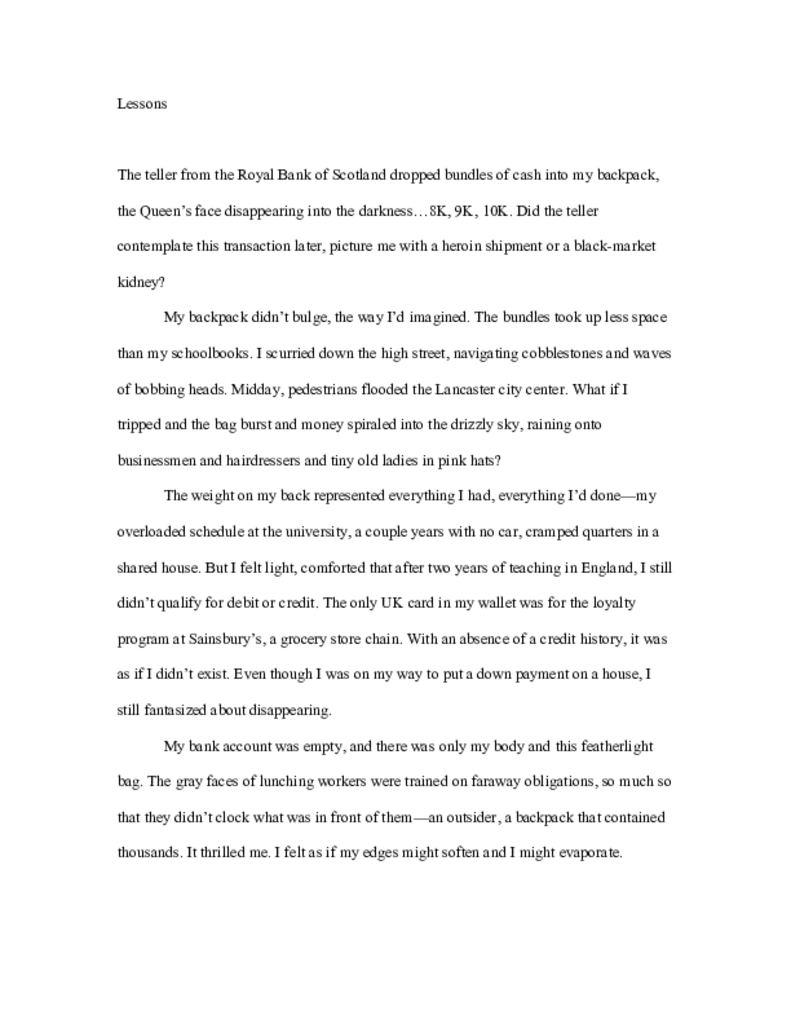
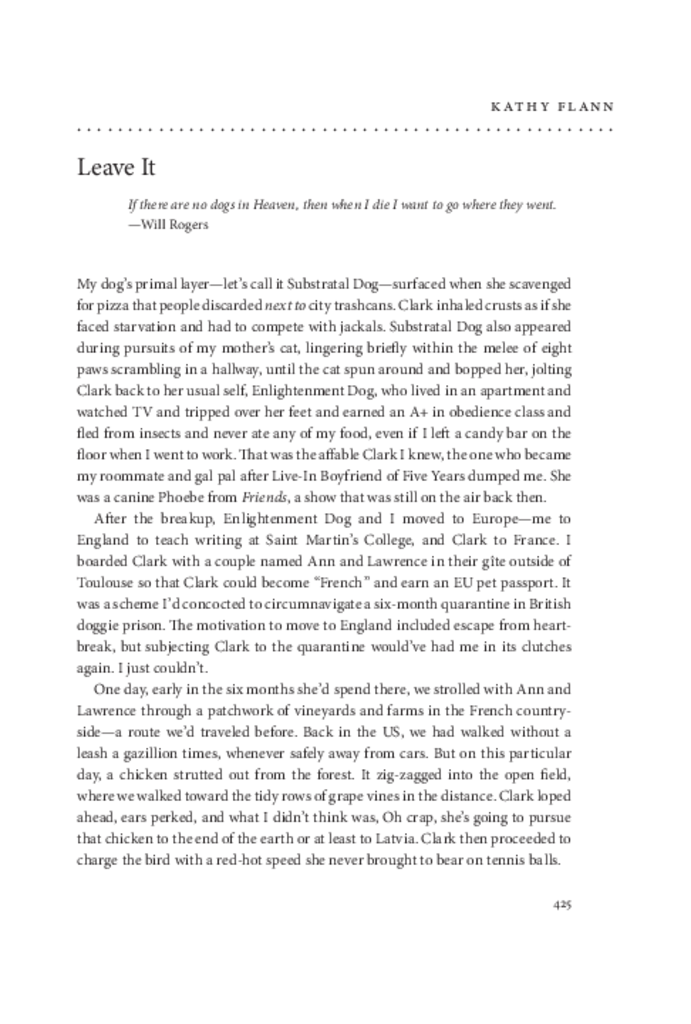
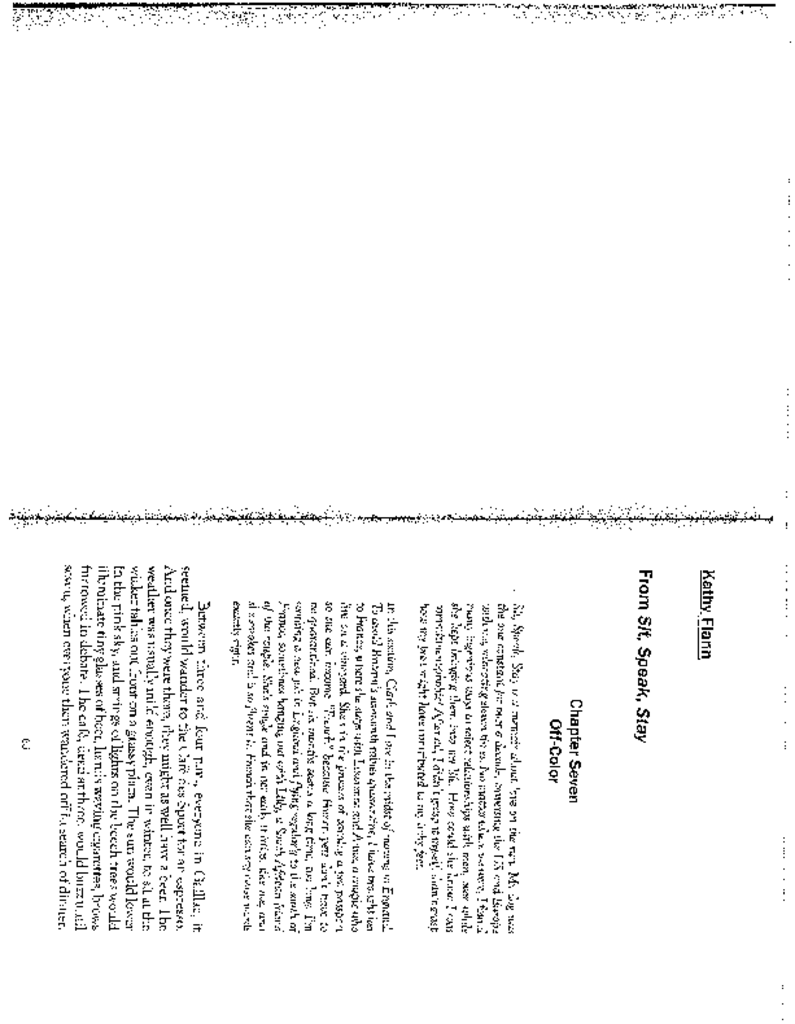
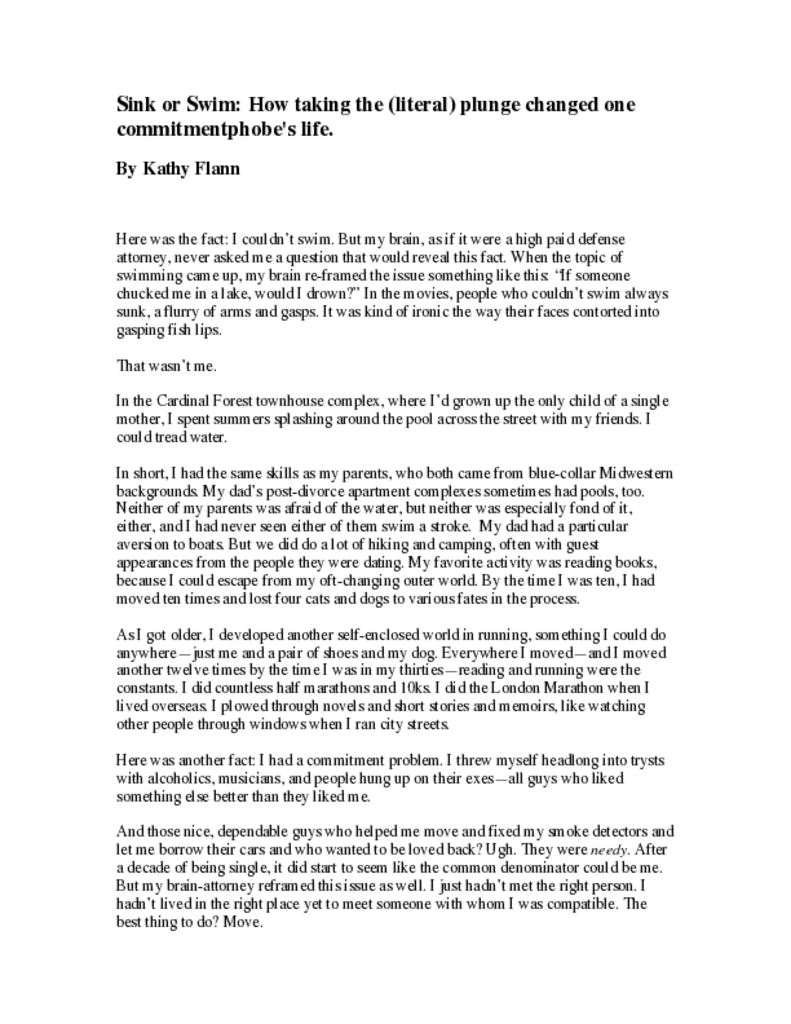
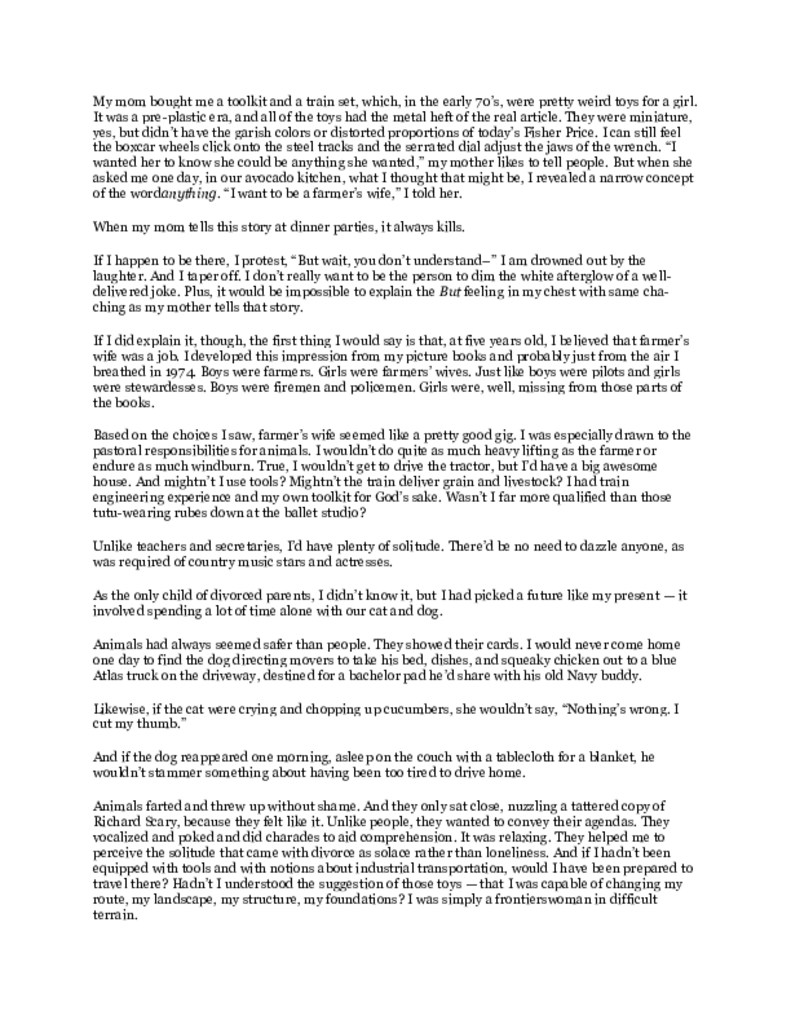
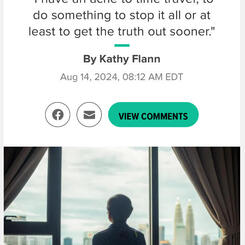
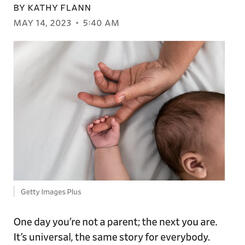
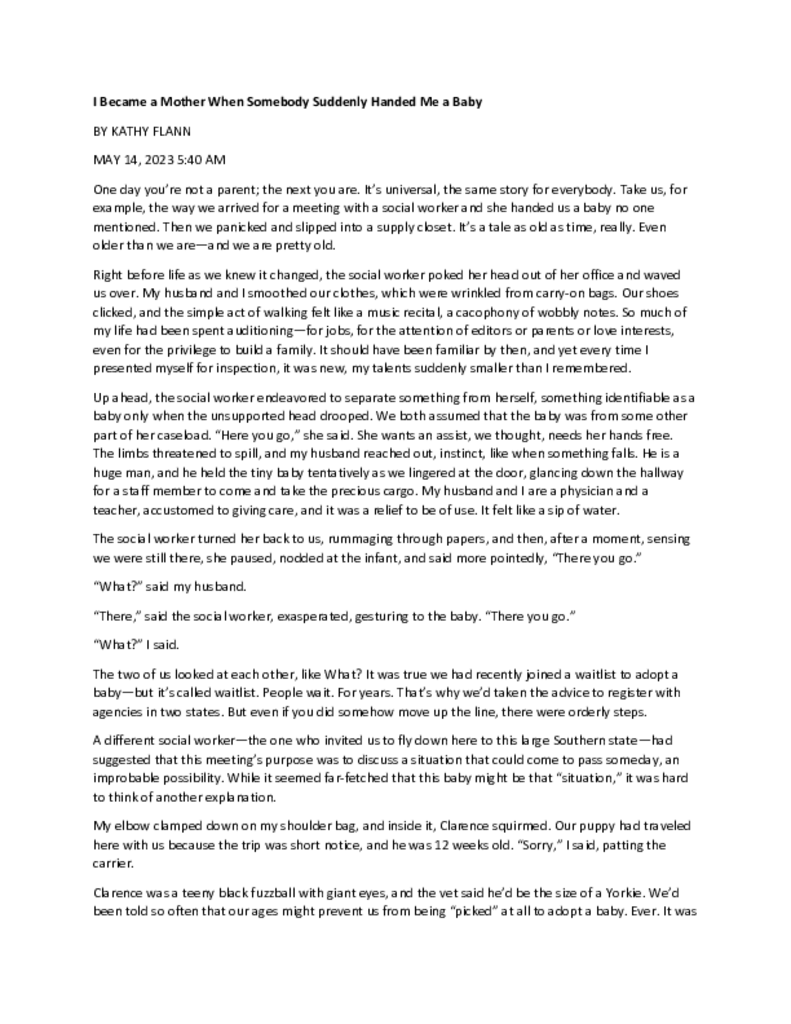
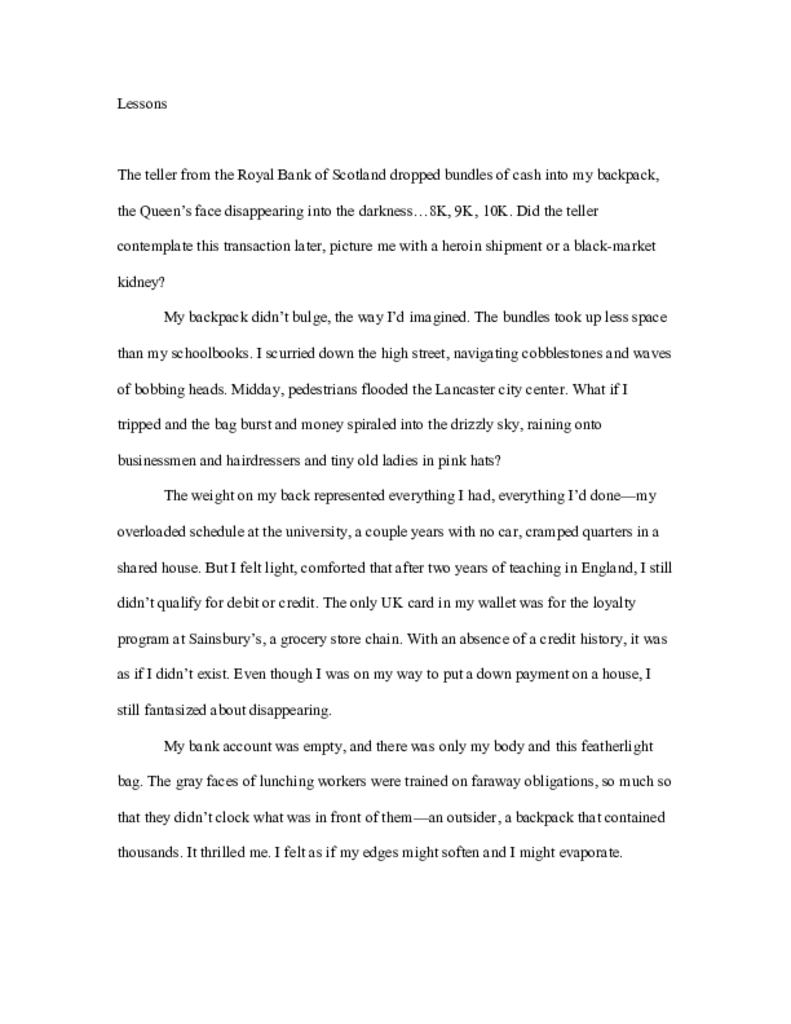
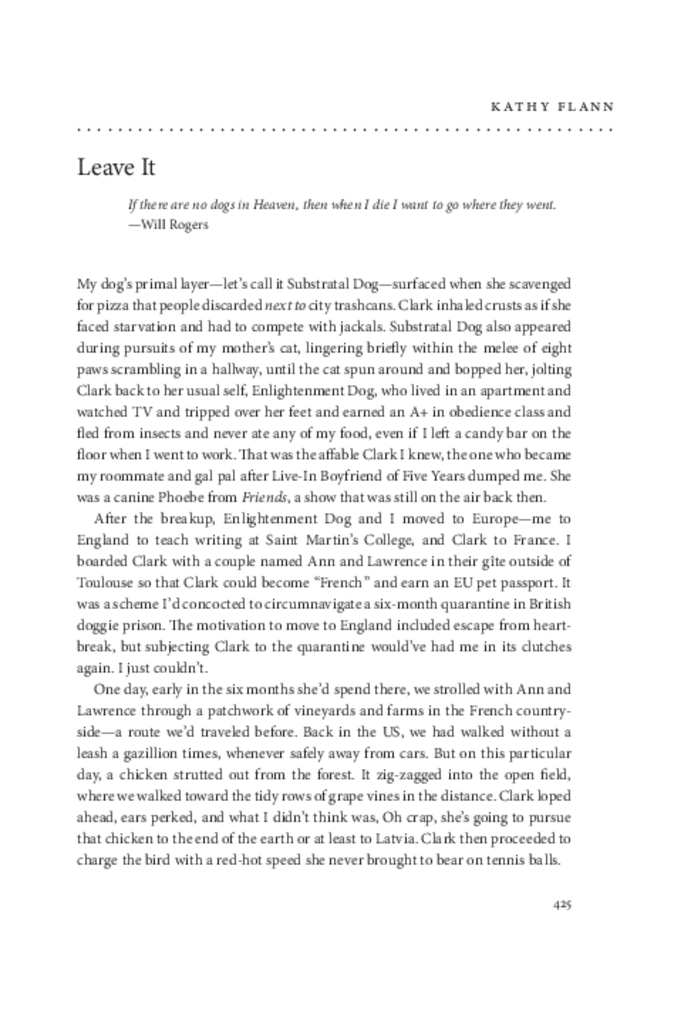
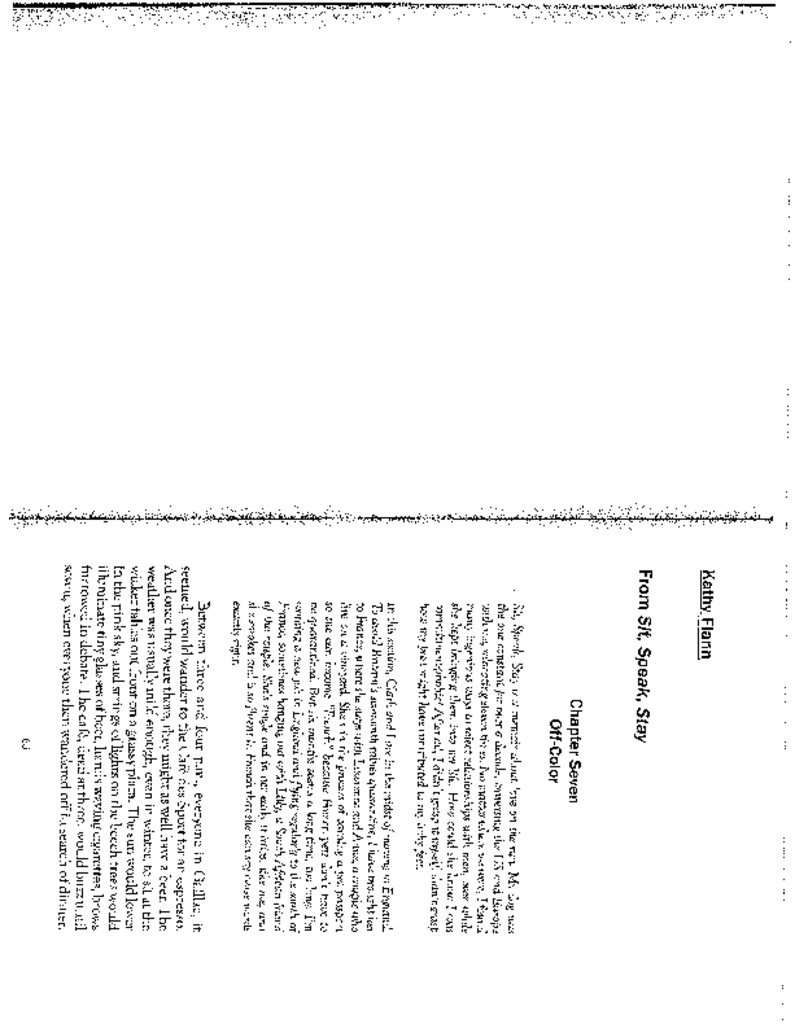
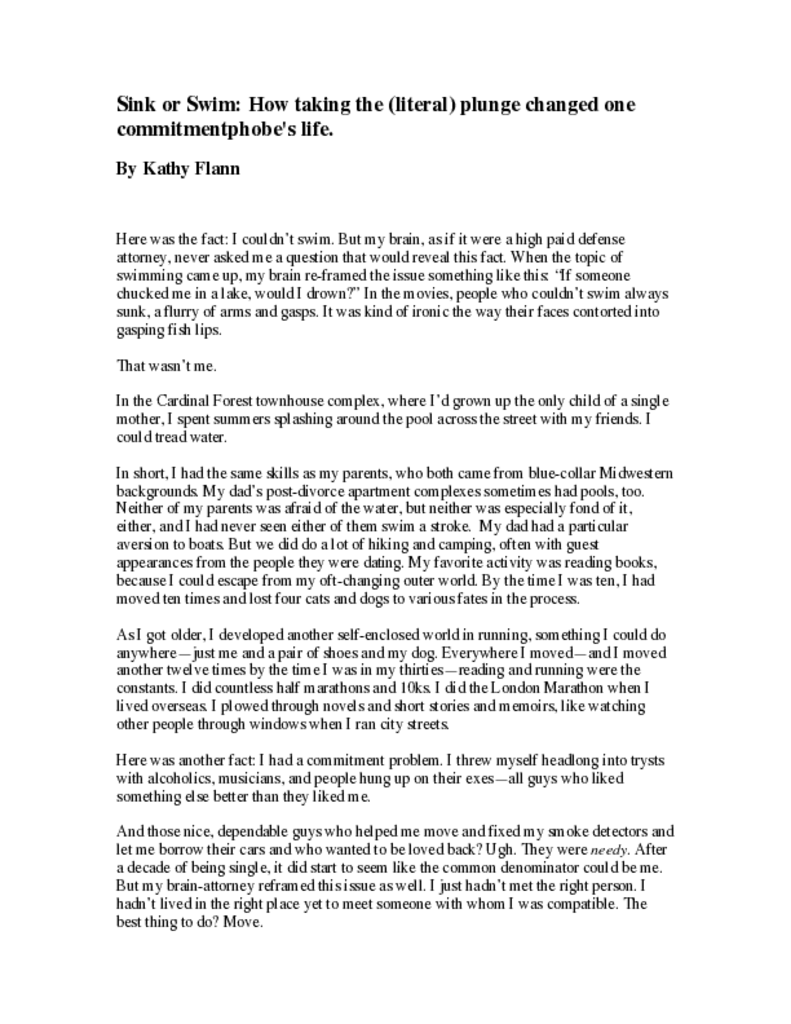
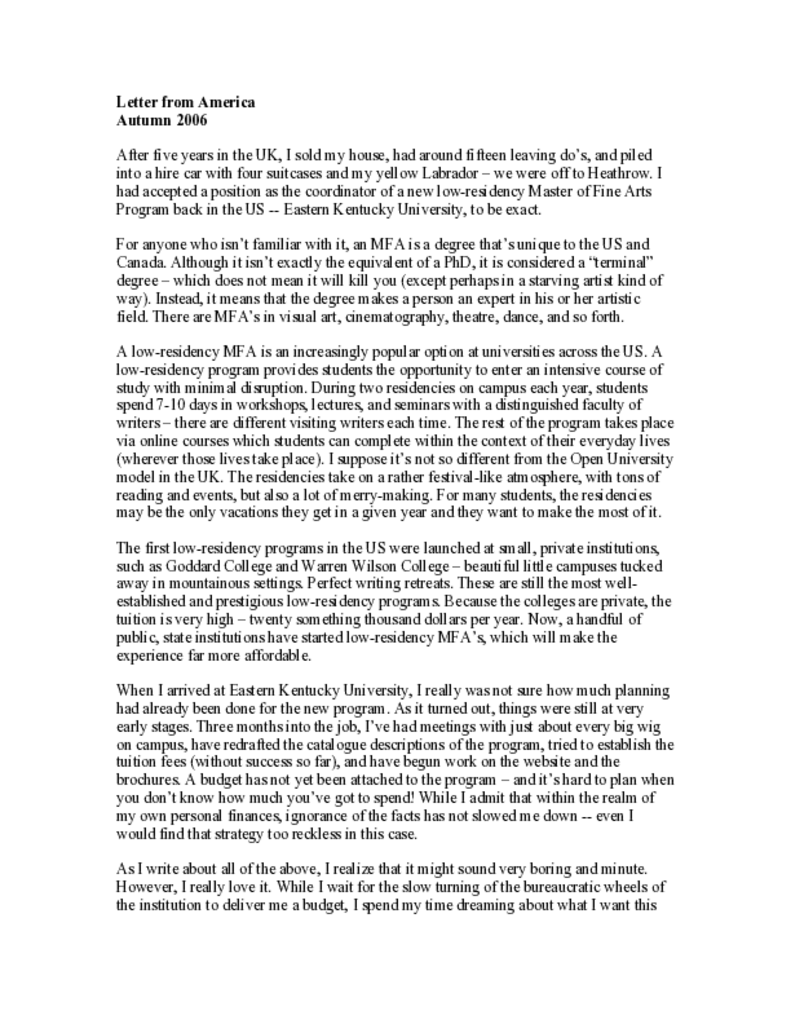
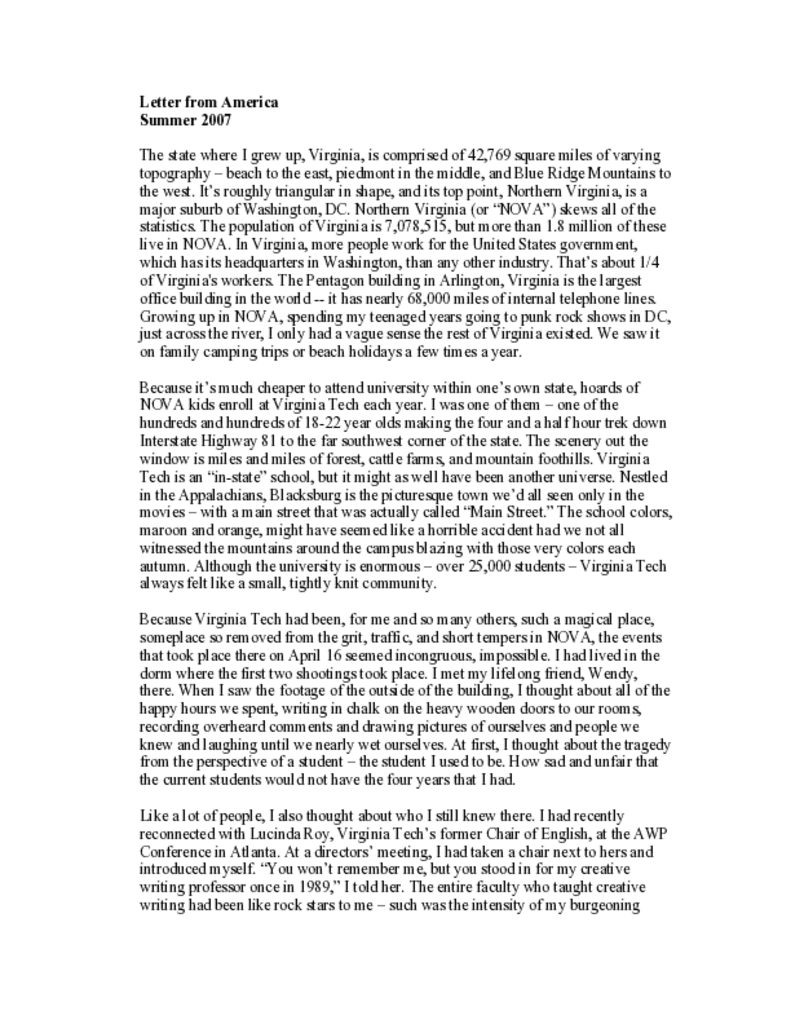
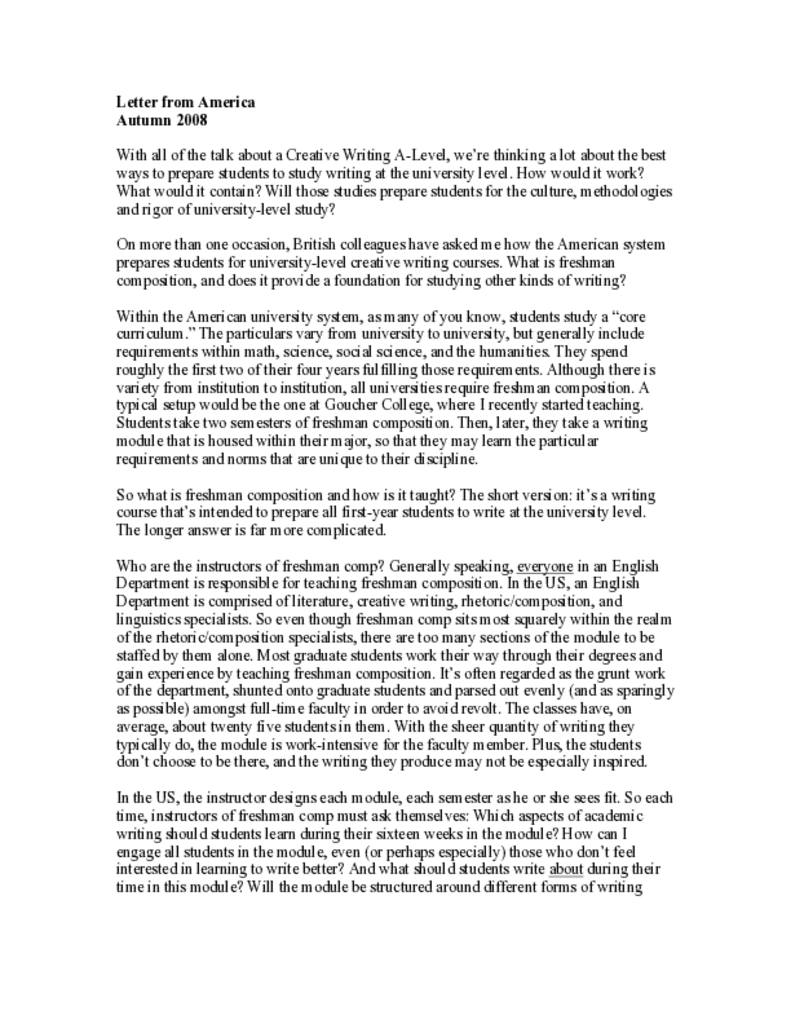
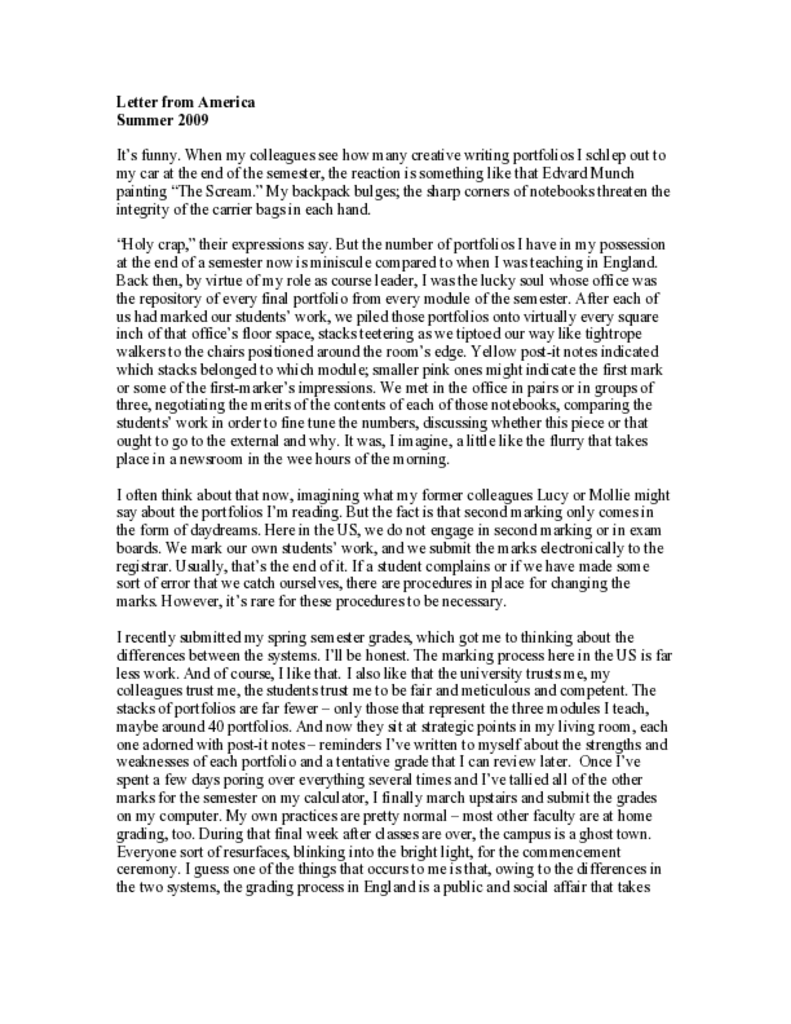
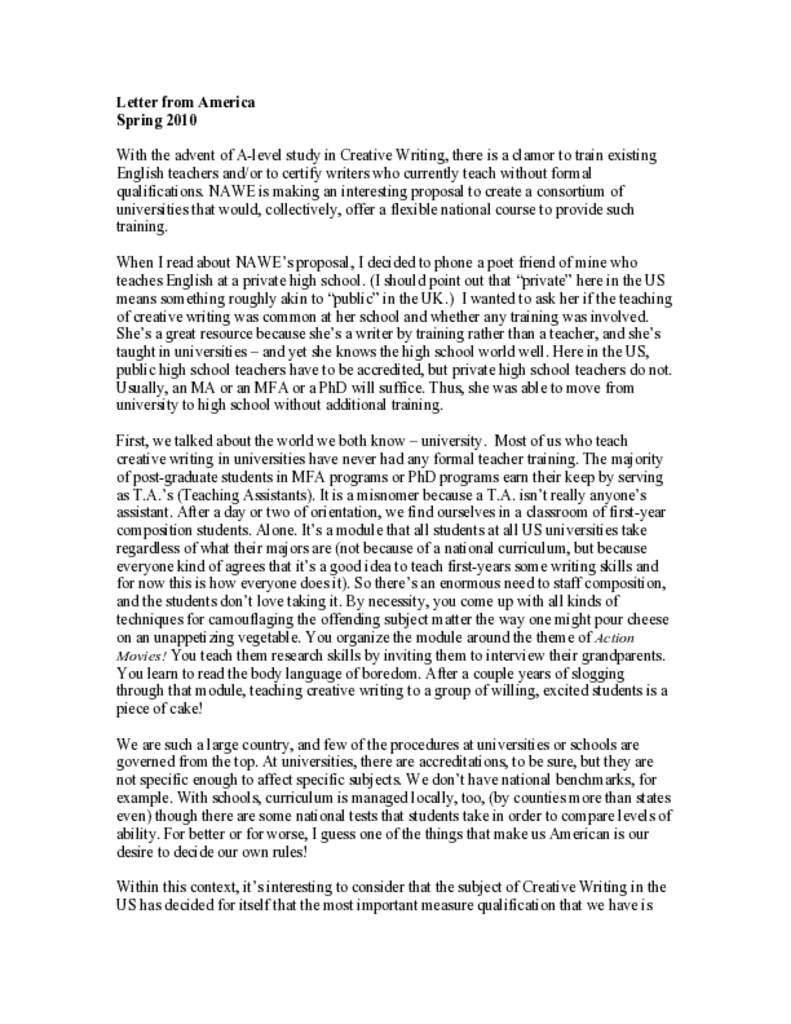
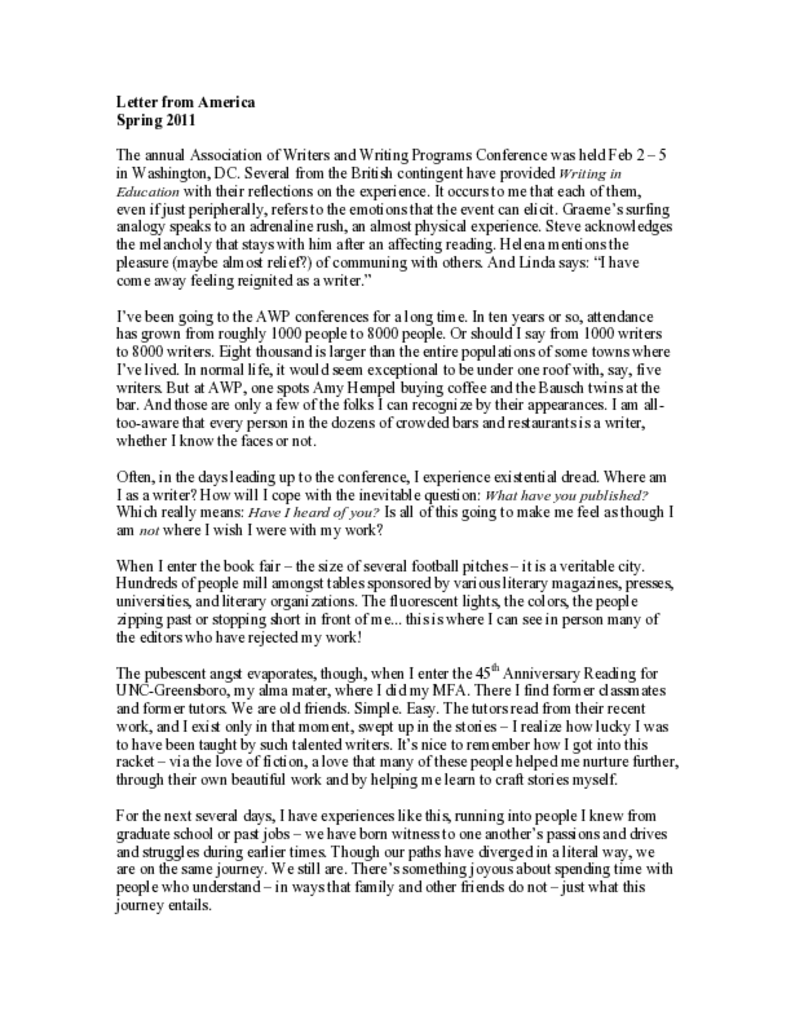
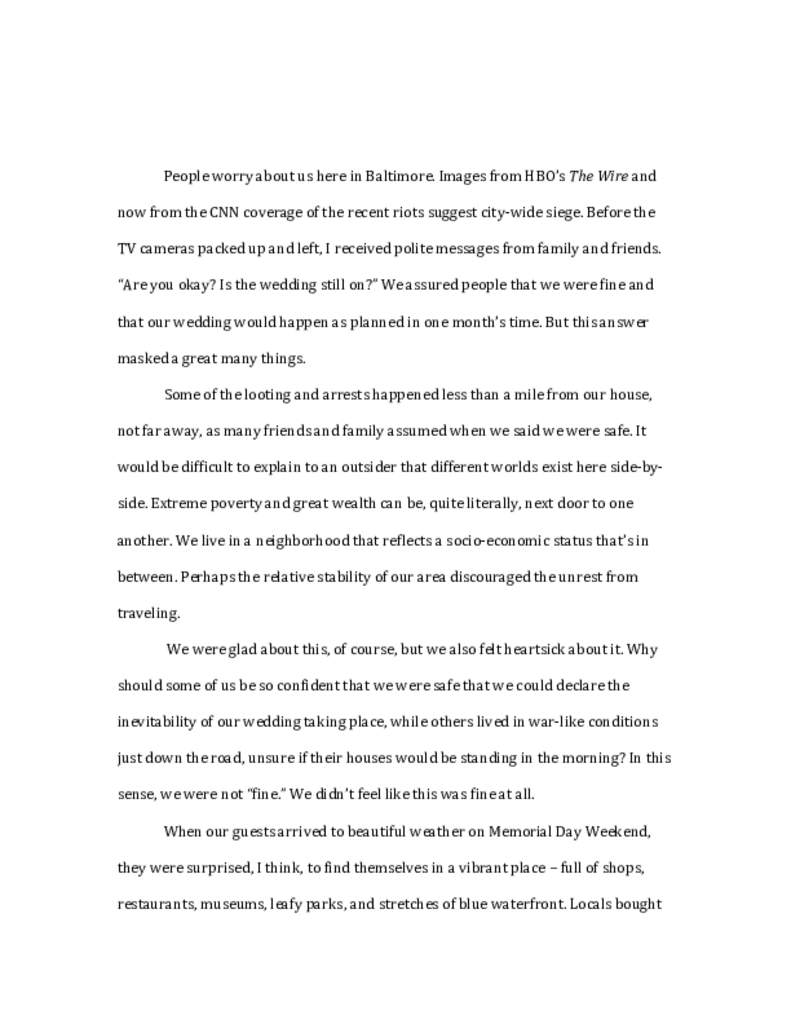
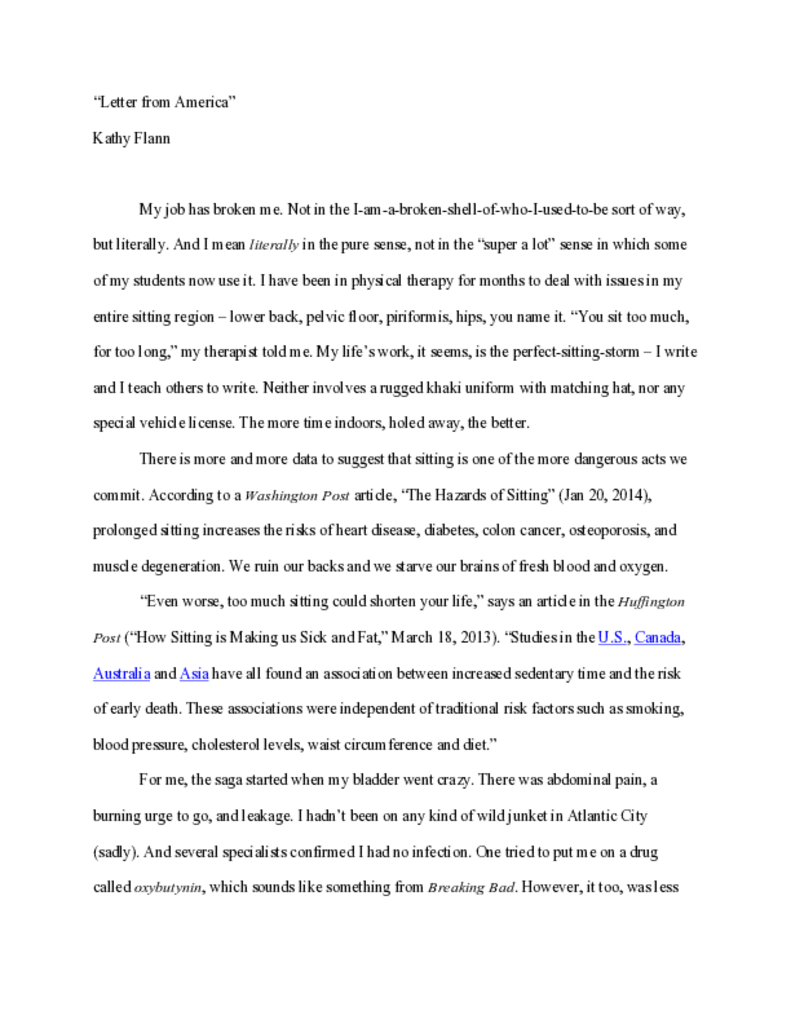
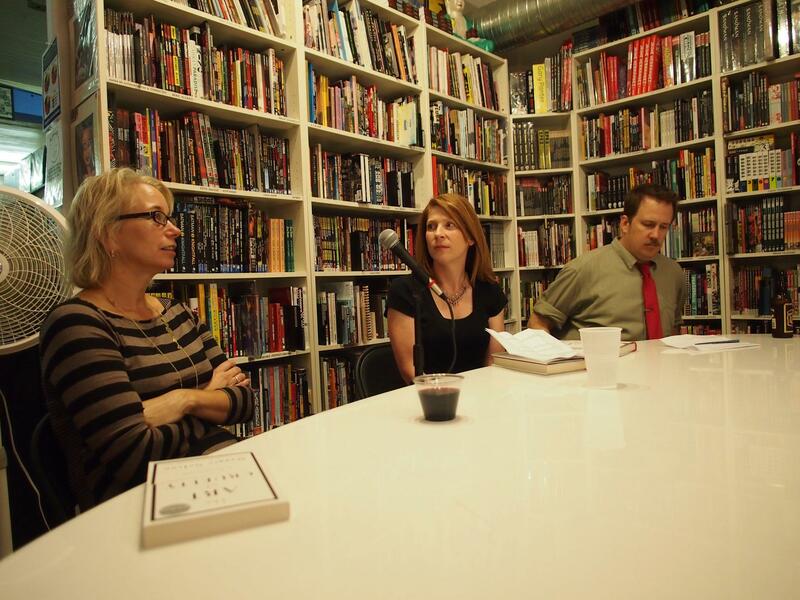
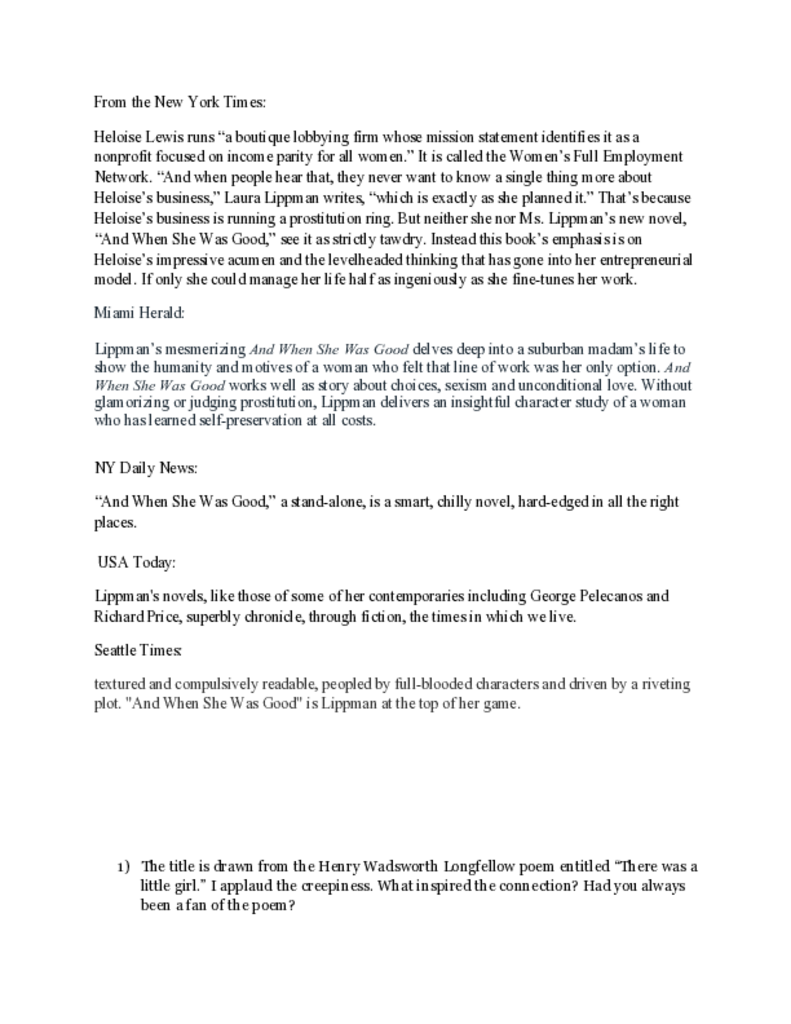
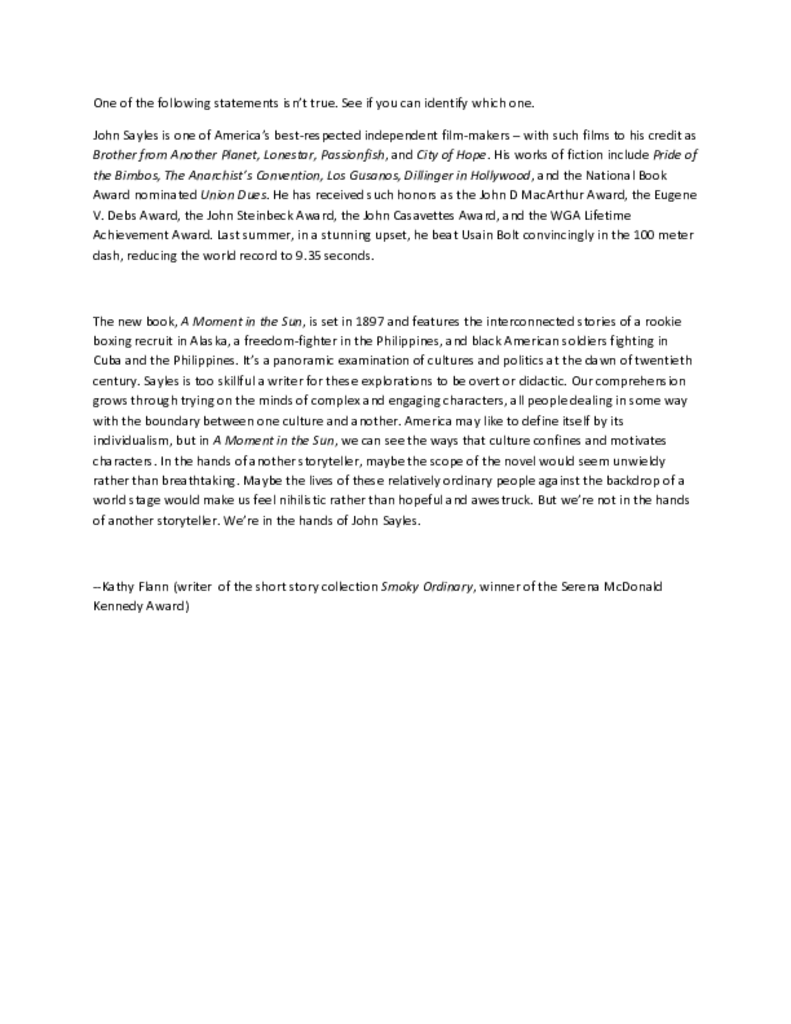
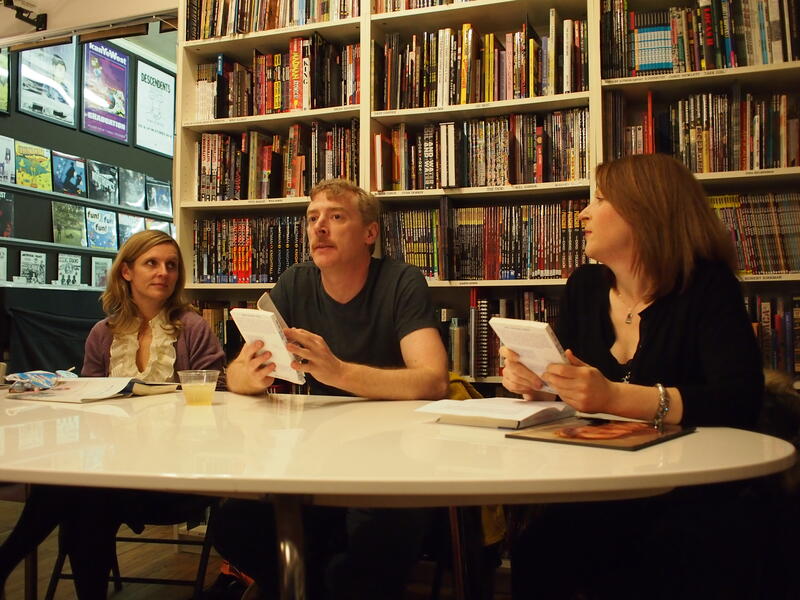
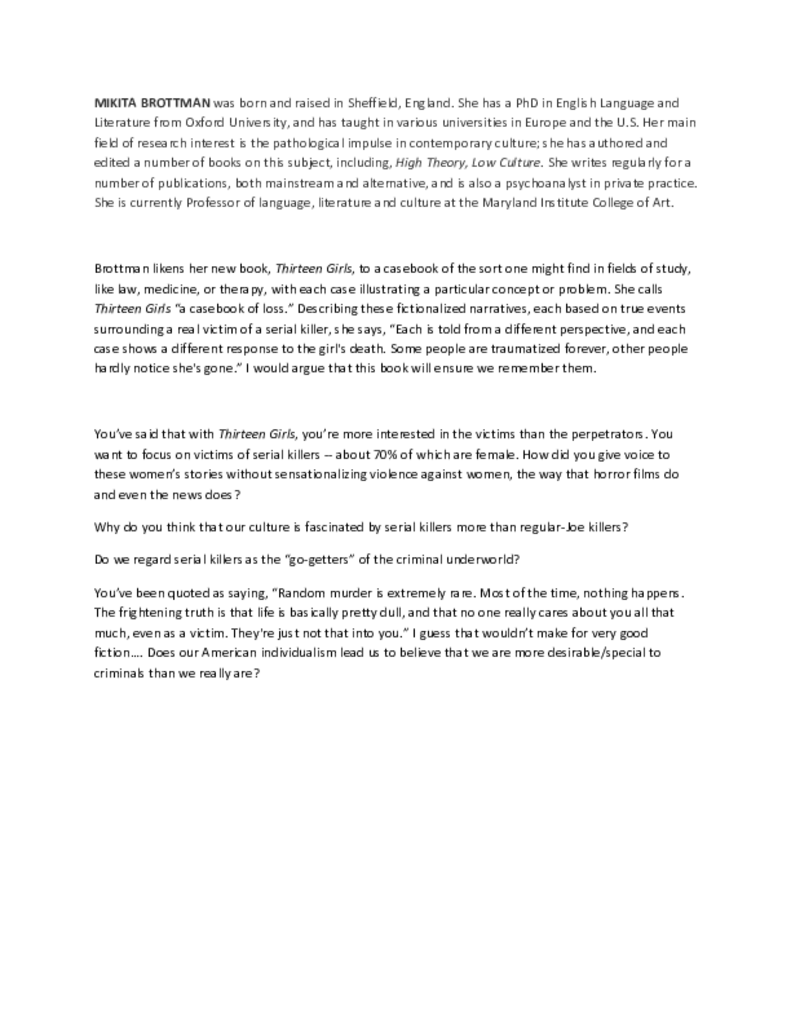
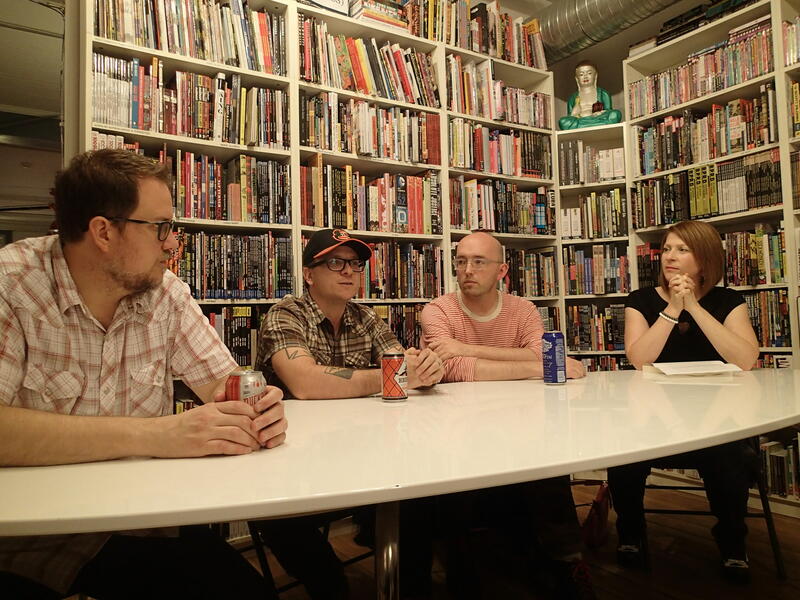



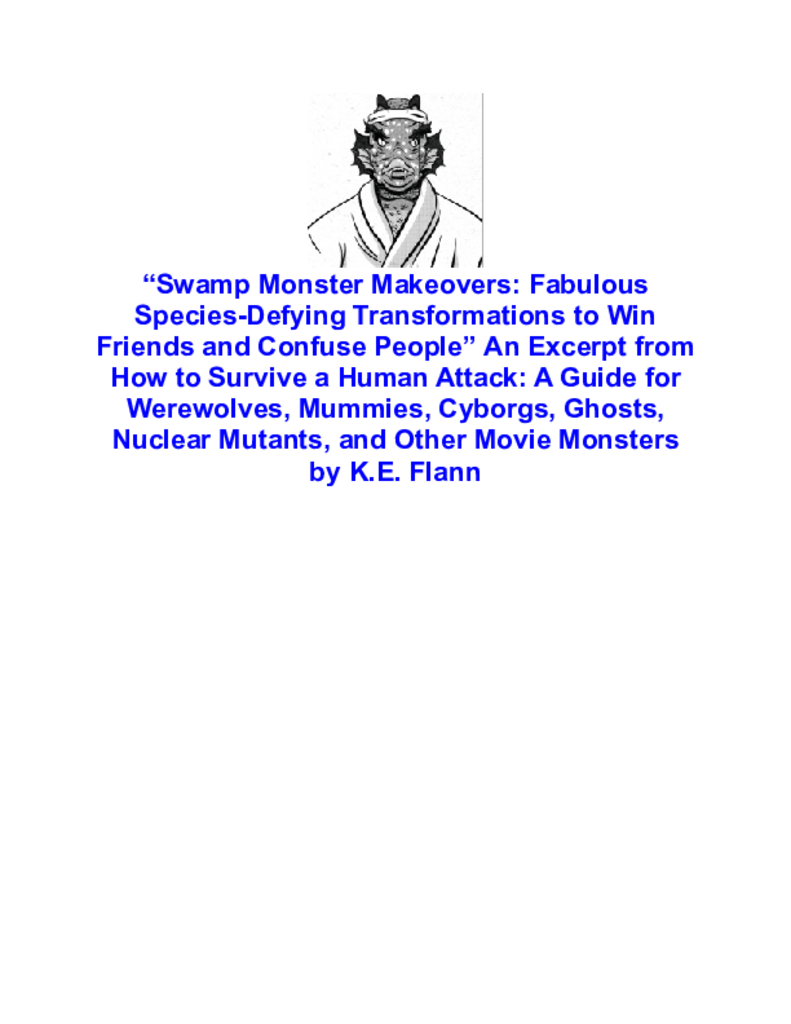
 Habits of Highly Effective Witches (book excerpt).png)
.png)
